The smells of a country remain with you. Albania smells of old oil and DDT, or is it burning plastic? It also smells of old food in bins – where skinny cats hang about. In the mountains you smell figs, thyme, origanum and pine trees.
It’s virtually a rubbish heap of small industries. In the northern parts of the country there isn’t a kilometre without a dump of concrete and torn strips of plastic, decayed or empty factory buildings. In the other kilometre there are filling stations, one after the other. Sometimes derelict, cordoned off with tape, or with a lonely pump attendant. The mountains have been mined with wounds that can never heal. The rivers are dirty. Plastic and rubbish washed up against every branch or river stone. Street vendors or stallholders leave their rubbish right there when they pack up…
Poverty, dirt and decay is our overwhelming impression.
It’s a country which could have been beautiful. There are mountains, green rivers fertile valleys and plains, old olive groves, the turquoise coastline of the Adriatic Sea and the remains of a rich cultural historical past.
And what does one hear? Loud, passionate people. The restfulness and rumble of lazy breakers over stones. Cicadas. Birds? Not many, but flocks of tiny migrational birds which fly up hurriedly when they see you. At night the whining and howling of mangy, chained dogs.
The decay today can probably be a consequence of their paranoid communist leader, Enver Hoxha, who ruled with an iron fist from 1944 until his death in 1985. And made the country self-sufficient and isolated and kept it that way. Apparently even more so than North Korea. One of the strange reminders is the 173,371 one man mushroom bunkers erected all over the country and which can still be seen everywhere. Altogether 750,000 bunkers were built instead of roads and infrastructure. Hoxha’s name is mentioned together with that of PW Botha and Kim Jong-Il as modern leaders who understood the word power.
Blood vengeance is a centuries old tradition here. Some or other Muslim spiritual leader developed the system many centuries ago – in its original form it had good consequences. In more recent times the judicial system and policing has let the people down since the fall of Communism and the law isn’t enforced. The people revived the blood vengeance system to fill the void, but in the modern form it is all negative. The onus to avenge can be carried over from generation to generation.
When we slept over in Shköder we knew that in that place there are people who live in such fear that they are lifelong prisoners in their own homes – too afraid to go out.
Especially in the north of the country with its strong patriarchal tradition the custom of sworn virgins (burrnesha of virgjnesha) is still often practised by a number of orthodox, muslim and catholic families. In families without a male patriarch, a female family member becomes a sworn virgin by taking an irreversible oath to remain celibate in order to take over a man’s role in the family. Then she has to start living as a man, wearing men’s clothes, using a man’s name, wearing a gun, smoking and using alcohol, only socialising with men and also becoming the head of the family. It is suspected that after the fall of Communism, just as in the case of blood vengeance, there can be a revival of this custom. There are still a couple of hundred of these virgins in especially the northern and mountainous parts of Albania.
*
Let’s begin with our point of entry. At the border post between Macedonia and Albania we were encircled by a group of Roma beggars. Filthy children, women with framed photos of dying babies, a man in a wheelchair. For a moment we were unnerved when they descended on us and touched us and begged. We were wary, because once a Roma child stole Anuta’s prescription glasses out of her moonbag, while she was talking to the little girl…
Crossing that border was like crossing over from paradise to a rubbish dump. It is rather a shock to cross that border after days of beauty, little traffic and the fairly good roads of Macedonia. Roads shake you till your bones rattle. Road rules don’t really apply and then comes the additional burden of not being able to trust a single driver of a Mercedes Benz. Especially at circles. Where the rule of giving way to the left should apply here, on a number of occasions we were almost swiped by cars coming from any direction. I think our SA taxi drivers had their training here, because they also do just as they please. Another strange phenomenon is that you can stop your car in the middle of a busy road, or even within a circle, and quickly go and do your shopping…
It’s a frenetic country. The roads are congested. You have to know what you are doing and be extra vigilant. The traffic is actually scary. When you have found your position on the main arterial roads, then you just have to ride hard and fast to hold that position. It’s especially unnerving when you become boxed between two trucks with the hind truck right on your tail.
Talking of Mercs. Every model from the 1970s till the present is still here. Two thirds of all cars on the road are Mercs. Then there is the whisper that they are all stolen vehicles from Western Europe. Another big business here is the car wash – Lavazh. For us, coming from a dry country, it’s quite a shock to see hoses spraying day and night as an advertisement. There is a Lavazh around every corner.
Before the trip we read on biker blogs about the highwaymen with AK47’s. Unfortunately we don’t have a story to tell…
Someone recommended that we take a 50km detour to miss the capital, Tirana, because the traffic is “crazy” there. But, a detour like that could easily make up a quarter of the day’s planned route. In our own wisdom we decided to take the shorter route north through Tirana. And there the two know-it-alls sat stuck in traffic for hours, hardly moving, three lanes in each direction, and when it does actually move, little defenceless you are forced off the road. It was hell. And on a hot day. We saw countless motorcyclists texting messages as they rode.
Accommodation varied from communistic chic to very tasteful and good quality apartments fitted with only the best and expensive finishes, from traditional in a medieval district to right next to the historic Bachelor’s Mosque in Berat where we were called to prayer at 4am to modern. Also from backstreet places to a palacial building in an olive grove with a mangy dog howling right through the night. Everywhere we were spoiled and cared for by these warm people of the Balkans. Roses, food and drinks were presented. At one place we were supplied with fresh linen and towels every day.
The GPS couldn’t find the address in Durrës and we were riding in circles on a highway. In the midday heat. When we eventually found the street, it was a dirt road with dongas and rubbish and no street numbers. Ah, it’s a long story, but the old man from Dhoma Dhe Garsonjere in Rruga Apulia (will never forget that one) came to fetch the miserable couple at a bus station – no, we didn’t go to look for alternative accommodation. We had to persevere, our booking had been done and paid for in advance. Behind the odd-looking gate stood a three-storied house where the hostess embraced us and welcomed us with a little bottle of rakija (local witblitz) from the freezer. But no toilet paper or towels supplied…
Without exception we never saw women socialising in public. Men fill the street cafés, especially in the evenings. Not a woman in sight. One evening there was some kind of festival in beautiful Berat. The kilometre long pedestrian mall is lined with cafés which were filled with men. Then the girls promenade (parade?) in their budget fancy wear and the men’s eyes are out on stalks. We didn’t see any couples promenading. Later on the entire town was parading. Grandpas and grandmas as well. Up and down. Later we got to recognise all the faces, hairstyles, torn denims and tattoos.
Just when we started to become disenchanted with the country, we moved further south. A whole different world. More agriculture, less industrial, mountains and neater towns. The city centre of Vlorë doesn’t have to stand back when compared with other European cities. Wide boulevards, all the familiar brand names, tidy. The seafront is still being developed with kilometres of promenade areas. Rather awful, because it’s easily 100m wide, all under cement. And, oh dear, the “beach” is just muddy brown soil from elsewhere. All you hear is Dutch
The much-acclaimed Llangora Pass over the high Acroceraunian Mountains is a must. Some biker websites consider it to be one of the best, most beautiful and challenging passes in Europe. We began to follow the coast from Vlorë early that morning. The sea pollution in the outlying areas was the worst we have ever seen. Even piles of tyres washed up. The road was bone rattling and sometimes we preferred to ride on the pavement. Fortunately the route swung towards the interior and then we began to climb. Through cedar forests to the crest – 1035m. The view from there was incomparable. The turquoise and blue Ionian Sea on the one side. Rugged mountains on the other.
The downhill was so steep with many serpentines that we actually suffered a little from vertigo. Our hands were cramping from all the braking. Imagine, us with out love of heights and sharp bends, suddenly becoming scared…
The further south we rode, the better things got. The informal dump sites remain, but an effort is made to keep the town centres clean. The beaches became more and more beautiful. Bluer and bluer until it eventually became a white-blue. Like glass. We rode from beach to beach. And swam to our heart’s content in liquid glass.
Sarandë, opposite Corfu, is not Albanian, not quite. It’s too clean, too touristy. We heard four British women complain that they felt uncomfortable here. It must be the many Romas begging with drugged babies on the hip.
On our last day we took a small, rough cement road that descended steeply to a small, quiet little beach. Monastery Beach. We swam and once again we were caught up in glass. The transparency of the water is almost incomprehensible. At a rough and ready restaurant they barbecue octopus over a fire in a messy backyard. There is also kid on the menu. At last. What a feast, kid and octopus.
Across the way from our flat was the Bahama Hotel. Day and night we heard the dogs in their cellar wailing and barking, the sound intensified by an empty concrete space. I went to complain. Big mistake. At first denial. I dragged the concierge to the cellar. Had him open the door. There stood four pitbull fighting dogs, chained and barking. I wanted to take a photo. He pushed me away. No, I am not allowed to. I threatened to report it to the police … We don’t know how the story will play out. For the moment I fear blood vengeance and the mighty Albanian mafia.
And what did I learn? That this journey, this visit, kept reminding me of South Africa. At first the isolation, dictatorship, the paranoia, suppression, and now the decay, poverty and piled rubbish. That evening in Berat I looked at the townspeople as they paraded, relaxed. Safe and peaceable. Actually a utopia in the morass, where everyone is equal. And in South Africa?
*
On the last morning we rode south. Slowly, we weren’t in a hurry. One beautiful fertile valley after another slipped by. Little churches on the hills. Mountains in the distance. Lakes with reflections next to us. We stopped on a rise. Bells rang nearby. Not the usual church bells. A delicate jingle. As if fragile. Ethereal.
Read more and see pictures: Blood vengeance Sworn virgins
Land van geswore maagde, bloedwraak en veghonde
Die reuke van ‘n land bly jou by. Albanië ruik na ou olie en DDT, of is dit plastiek wat brand? Dit ruik ook na ou kos in vullishouers – waar maer katte rondraai. In die berge ruik dit na vye, tiemie, origanum en dennebome.
Visueel is dit ‘n puinhoop van klein-industrieë. In die noordelike dele van die land is daar nie ‘n kilometer sonder rommelhope van beton en plastiekflarde of vervalle, leë fabrieksgeboue nie. In die ander kilometer is daar vulstasies, die een na die ander. Soms verlate, met plastieklint toegespan, of met ‘n eensame petroljoggie. Die berge is oopgemyn met wonde wat nooit kan genees nie. Die riviere is vuil. Plastiek en afval is teen elke tak of rivierklip vasgespoel. Straatverkopers los hulle vullis net daar as hulle oppak…
Armoede, vuil en verval is ons oorwegende indruk.
Dit is ‘n land wat mooi kon gewees het. Daar is berge, groen riviere, vrugbare valleie en vlaktes, ou olyfboorde, selonsrose, die turkoois kuslyn van die Adriatiese See, en die reste van ‘n ryk kultuur-historiese geskiedenis.
En wat hoor ‘n mens? Luide passievolle mense. Die rustigheid en geroggel van lui branders wat oor klippies breek. Cicada’s. Voëls? Min, maar swerms klein migrasie voëltjies wat vinnig wegvlieg as hulle jou sien. Snags kerm brandsiek vasgekettingde honde wat ons wakkerhou.
Die verval kan seker alles terugwys na na hulle paranoïese kommunistiese leier, Enver Hoxha, wat die land van 1944 tot met sy dood in 1985 met ‘n ysterhand geregeer het. En die land selfonderhoudend en afgeslote gemaak en gehou het. Glo meer as Noord-Korea. Een van die vreemde oorblyfsels is die 173,371 eenman sampioenbunkers wat oor die hele land gebou is en wat jy nog oral sien. Altesaam is daar 750 000 bunkers gebou in plaas van paaie en infrastruktuur. Hoxha se naam word saam met PW Botha en Kim Jong-il genoem as die moderne leiers wat die woord mag verstaan.
Bloedwraak is hier ‘n eeue-oue gebruik. Die een of ander geestelike Moslemleier het die gedagte baie eeue gelede ontwikkel– in sy oorspronklike vorm het dit goeie dinge tot gevolg gehad. In die meer onlangse tye het die regstelsel en polisiëring, na die val van kommunisme, die mense in die steek gelaat en het hulle teruggegryp na die bloedwraakstelsel om geregtigheid af te dwing, maar sonder die goeie. Die verpligting tot wraak kan van geslag tot geslag oorgedra word. Van pa na seun.
Toe ons die nag in Shköder oorslaap het jy geweet in hierdie plek is daar mense wat so onder vrees lewe dat hulle lewenslank gevangenes in hulle huise is – te bang om dit te verlaat.
In veral die noorde van die land met sy sterk patriagale tradisie word die gebruik van geswore maagde (burrnesha of virgjnesha) nog deur heelwat ortodokse, moslem en katolieke families beoefen. ‘n Vrou word ‘n geswore maagd deur ‘n onherroeplike eed te neem om selibaat te lewe om haar familie of haarself te behaag. Dan moet sy soos ‘n man begin lewe, mansklere dra, ‘n mansnaam kry, ‘n wapen dra, rook en alkohol gebruik, net met mans sosiaal verkeer, en dan ook die hoof van die familie word. Daar word geskat dat daar na die val van kommunisme, net soos met bloedwraak, weer ‘n oplewing kan wees. Daar is nog ‘n paar honderd van hierdie maagde in veral die noordelike en bergagtige dele van Albanië.
*
Kom ons begin by ons point of entry. By die grenspos tussen Macedonië en Albanië word ons oorval deur ‘n groep Roma bedelaars. Smerige kinders, vrouens met geraamde foto’s van sterwende babas, ‘n man in ‘n rolstoel. Vir ‘n oomblik is ons ontsenu toe hulle op ons toesak en aan ons gryp en bedel. Ons is bedag, want eenkeer het ‘n Romakind op ‘n bus in Sofia Anuta se bril uit haar handsak gesteel, terwyl sy met die dogtertjie gesels het…
Die oorsteek oor daardie grens was soos om van die paradys na ‘n rommelhoop oor te skuif. Dit is nogal ‘n skok om na dae se skoonheid, min verkeer en die goeie paaie van Macedonië die grens oor te steek. Paaie skud jou uitmekaar. Verskeersreëls geld nie eintlik nie en toe kom die ekstra las by dat jy nie een bestuurder van ‘n Mercedes Benz kan vertrou nie. Veral nie by sirkels nie. Waar die reël van voorrang na links hier moet geld is ons hoeveelkere by sirkels amper vanuit alle rigtings omgery. Ek dink ons SA taxi-bestuurders het hulle opleiding hier gehad, want hulle doen ook net wat hulle wil. ‘n Ander vreemde verskynsel is dat jy in die middel van ‘n besige pad, of selfs in ‘n sirkel, kan stilhou en gou gaan inkopies doen…
Dit is ‘n frenetiese land. Die paaie is oorvol. Jy moet jou storie ken en ekstra waaksaam wees. Die verkeer is eintlik skrikwekkend. As jy eers in die glystroom van die hoofpaaie kom, moet jy ry, vinnig ry, om jou posisie te behou. Dit is veral senutergend as jy weerloos tussen twee lorries ingeboks is met die agterste een op jou stert.
So van Mercs gepraat. Elke model van die 1970’s tot nou toe is nog hier. Twee derdes van alle motors op die pad is Mercs. Dan word daar gefluister dat dit almal gesteelde voertuie van Wes-Europa is. ‘n Ander groot bedryf is karwasserye – Lavazh. Vir ons van die droë wêreld nogal ‘n skok om tuinslange te sien wat dag en nag as advertensie water spuit. Om elke hoek en draai is ‘n Lavazh.
Ons lees vooraf op biker-blogs van struikrowers met AK47’s op die paaie. Ongelukkig het ons nie ‘n storie om te vertel nie.
Iemand beveel aan ons moet ‘n 50km draai om die hoofstad Tirana ry omdat die verkeer daar crazy is. Maar so ‘n draai kan maklik ‘n kwart van jou dag se beplande afstand wees. Ewe wys besluit ons om die kort pad deur Tirana te neem op pad na die noorde. En daar sit die wysneuse toe vir ure vas in verkeer wat byna nie vloei nie, drie bane breed, en as dit wel beweeg word weerlose jy van die pad gedruk. Dit was hel. En dit op ‘n warm dag. Ons sien hoeveel keer motorfietsryers wat in die ry teksboodskappe skryf.
Verblyf het gewissel van kommunisties sjiek tot baie smaakvol en alle afwerkings duursaam en van die hoogste gehalte, van tradisioneel in ‘n middeleeuse gebied reg langs die historiese Oujongkêrelmoskee in Berat waar ons om 4vm wakker geroep is tot modern. Daar was ook van agterstraat plekke tot ‘n paleisagtige woning in ‘n olyfboord met ‘n brandsiek hond wat deur die nag huilblaf. Ons word oral bederf en op die hande gedra deur hierdie warm Balkanmense. Rose, drink- en eetgoed word aangedra. By die een plek is ons daagliks van kraakvars lakens en handdoeke voorsien.
In Durrës kan die GPS nie die adres vind nie en ry ons in sirkels op ‘n snelweg. So in die hitte van die middaguur. Toe ons uiteindelik die straat vind is dit ‘n grondpad met dongas en vullis en geen straatnommers nie. Ag, dis ‘n lang storie, maar die omie van Dhoma Dhe Garsonjere in Rruga Apulia (sal dit nooit vergeet nie!) het die bedremmelde vrag by ‘n bushalte kom haal – nee, ons het nie ander blyplek gaan soek nie. Ons byt mos vas, en die verblyf is vooruit betaal. Agter die hek is toe ‘n groot drieverdieping woning en word ons deur die gasvrou omhels met ‘n bottel rakija (plaaslike mampoer) uit die vrieskas. Maar daar is nie toiletpapier of handdoeke uitgesit nie…
Ons het hoeveel kere gesien dat vroue nie juis in die openbaar kuier nie. Veral saans sit die manne alleen die baie straatkafees vol. Nie ‘n vrou in sig nie. Een aand is ons in die mooi Berat en daar is ‘n fees aan die gang. Vir seker ‘n kilometer aanmekaar sit daar net mans die straatkafees van die wandelstraat tjok en blok vol. Dan paradeer die jong meisies goedkoop-swierig uitgevat so op en af en die manne se tonge hang uit. Ons sien nie paartjies saamstap nie. Later is die hele dorp aan die paradeer. Oupa en ouma inkluis. Op en af. Later ken ons al die gesigte, haarstyle, geskeurde denims en tattoo’s.
Net toe ons begin ontnugter raak met die land, begin ons verder suid beweeg. ‘n Heel ander wêreld. Meer boerderye, minder industriëel, berge en netjieser dorpe. Vlorë se kern kan kers vashou by ander Europese stede. Breë boulevards, al die bekende handelsmerke, netjies. Die kuslyn is besig om ontwikkel te word in ‘n kilometers lange promenade. Nogal woes, want dit is maklik 100m breed, alles onder sement. En, oe, die strand het modderige bruin sand, van elders ingery.
Die veel geroemde Llangorapas oor die hoë Acroceraunianberge was ‘n moet. Sommige biker-webwerwe beskou dit as een van die beste, mooiste en uitdagendste passe in Europa. Ons het vroeg uit Vlorë kuslangs begin ry. Die seebesoedeling aan die buitewyke die ergste wat ons nog ooit gesien het. Selfs hope buitebande wat uitspoel. Die pad het ons uitmekaar geskud en soms moes ons op die sypaadjie ry. Gelukkig swaai die roete toe binneland toe en begin ons klim. Deur sederwoude tot op die kruin – 1035m. Van daar was die uitsig weergaloos. Die turkoois en blou Ioniese See aan die een kant. Ruwwe berge aan die anderkant.
Met die afdaal was die pad so steil met baie serpentinas dat ons vir die eerste keer hoogtevrees gekry het. Ons hande beginne kramp van al die remtrek. Verbeel jou, ons met ons liefde vir hoogtes en skerp draaie raak toe skielik bang…
Hoe verder suid ons ry, hoe beter word dit. Die informele stortingsterreine bly, maar moeite word gedoen om die kern van dorpe skoon te hou. Die strande word net mooier en mooier. Blouer en blouer tot dit later witblou word. Soos glas. Ons ry van strand tot strand. Swem in die deursigtigheid.
Sarandë, oorkant Corfu, is nie Albanies nie. Dit is té skoon, té toeristies. Ons hoor vier Britse vrou kla hulle voel ongemaklik hier. Dit moet die baie Romas wees wat met bedwelmde jong kindertjies op die heup bedel.
Op ons laaste dag neem ons ‘n klein rowwe sementpad wat met mening afdaal tot by ‘n klein stil strandjie. Kloosterbaai. Ons swem en word weer in glas vasgevang. Die deursigtigheid van water byna onbegryplik. By ‘n rowwe restourantjie braai hulle seekat oor ‘n vuur in die deurmekaar agterplaas. Op die spyskaart is ook bokvleis. Uiteindelik. Wat ‘n feesmaal, die bok en seekat.
Oorkant ons woonstel is die Bahama Hotel. Dag en nag huil honde in hulle kelder wat die gekerm vergerger. Ek gaan kla. Groot fout. Eers word dit ontken. Ek sleep die concierge tot by die kelders. Laat hom die deur oopmaak. Daar staan vier pit bull vegtershonde aan kettings en blaf. Ek wil ‘n foto neem. Hy druk my weg, nee ek mag nie. Ek dreig om dit by die polisie aan te gee… Die storie het nog nie ‘n einde nie. Vir eers is ek bang vir bloedwraak en die magtige mafia.
En wat het ek geleer? Dat hierdie reis, hierdie besoek, my aanmekaar laat dink aan Suid-Afrika. Eers die isolasie destyds, diktatorskap, die paranoia, onderdrukking, en nou die verval, armoede en opgehoopte rommel. Die aand daar in Berat kyk ek die dorp se mense só toe hulle rustig op en af paradeer. Veilig en in vrede. Eintlik ‘n utopia in die moeras, waar almal gelyk is. En Suid-Afrika?
*
Die laaste oggend ry ons suid. Stadig, want ons is nie haastig nie. Die een mooi en vrugbare vallei gly by ons verby. Kerkies op die heuwels. Berge in die verte. Mere met weerkaatsings langs ons. Op ‘n hoogte hou ons stil. Klokke lui naby ons. Nie die gewone kerkklokke nie. ‘n Ragfyn geritsel. Asof dit kan breek. Só fyn.
Lees meer en sien goeie foto’s: Blood vengeance Sworn virgins
Sworn virgins
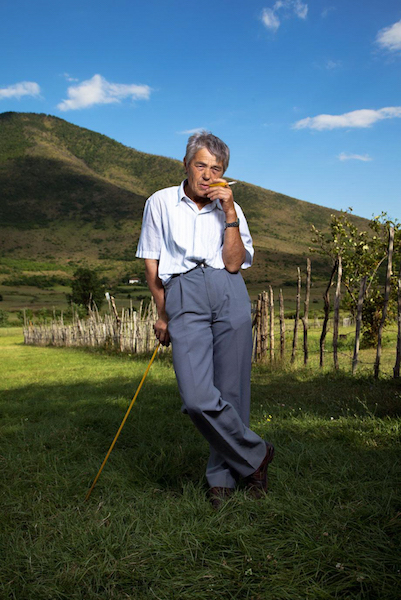
Blood vengeance
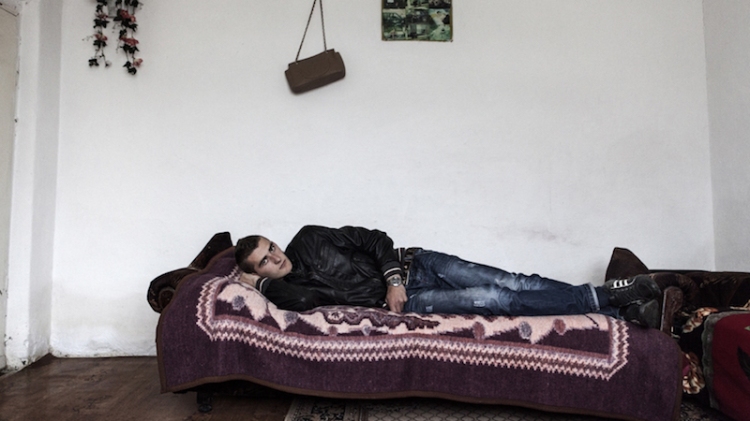
Arrival
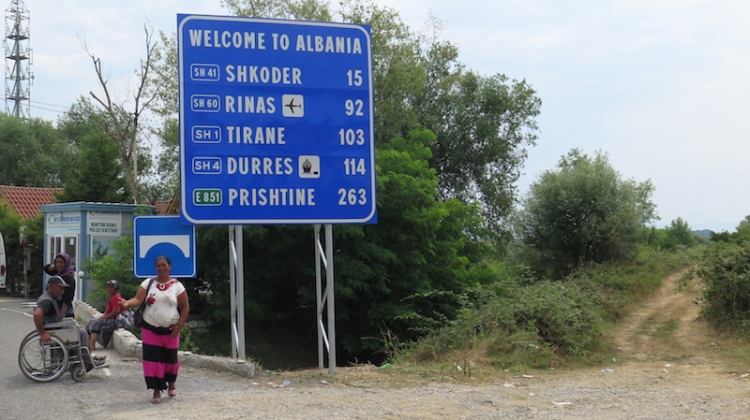
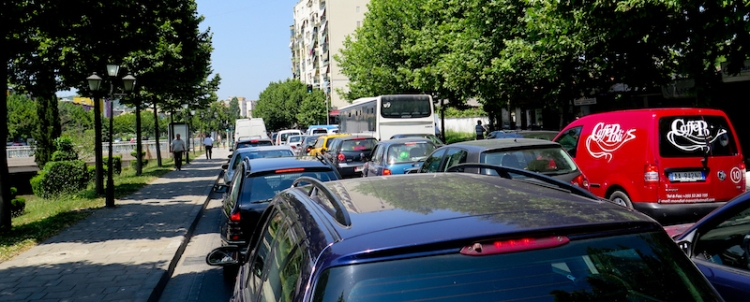
Shkodër
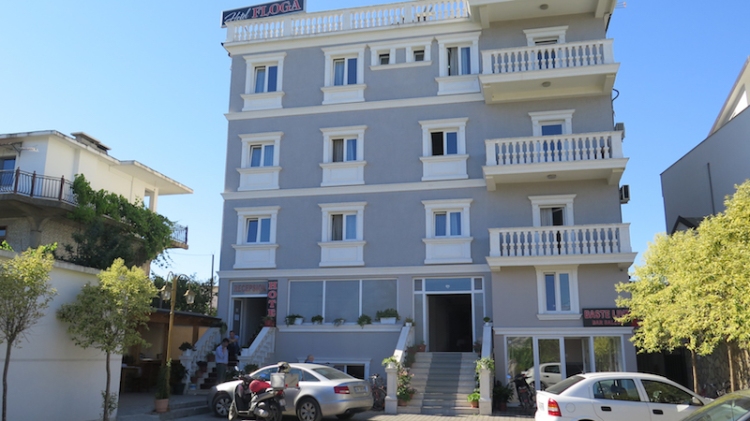
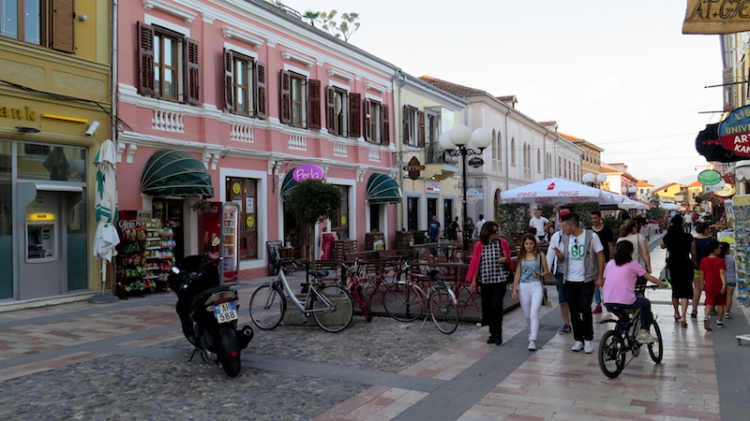
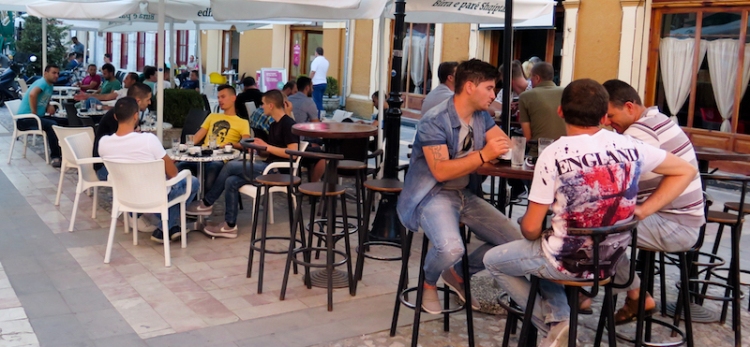
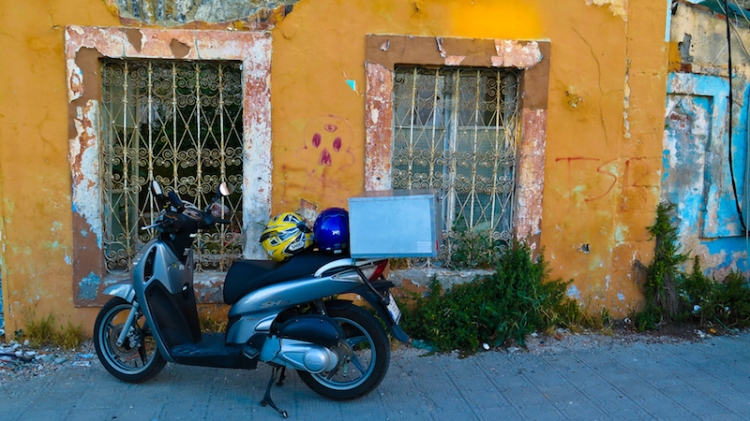
Durrës
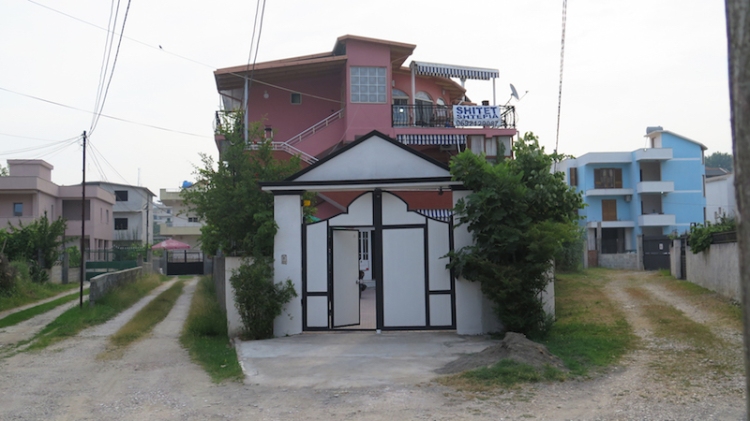
Berat
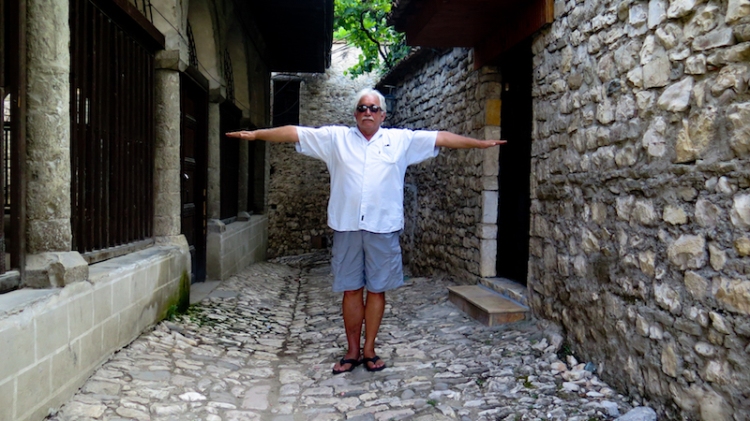
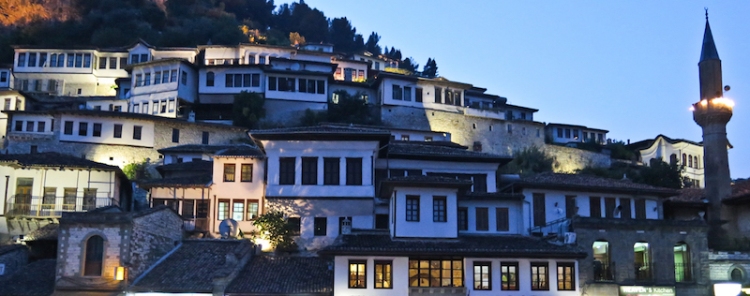
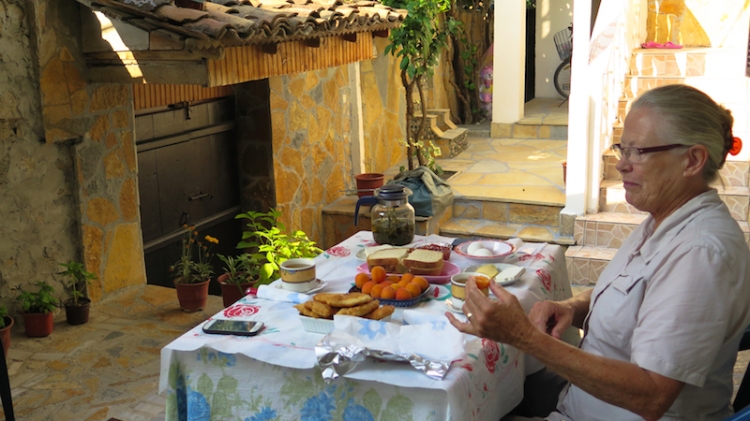
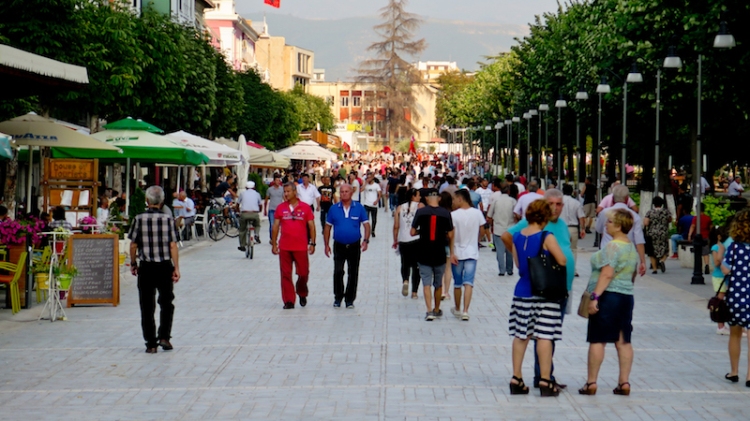
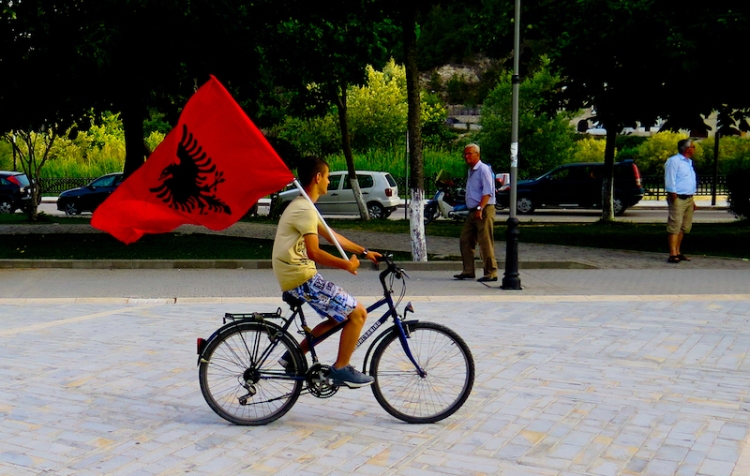
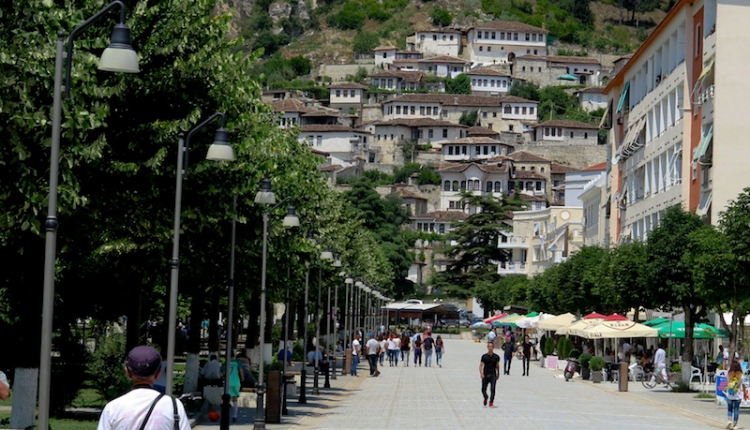
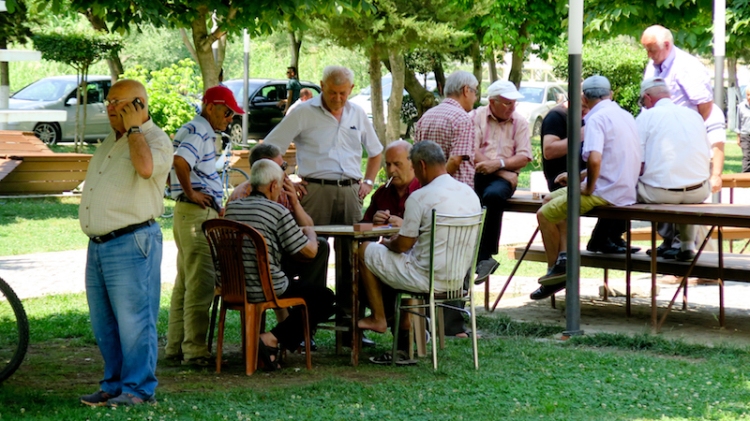
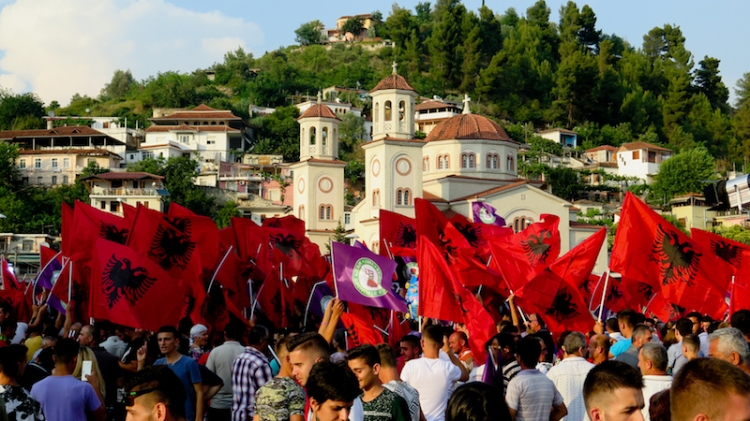
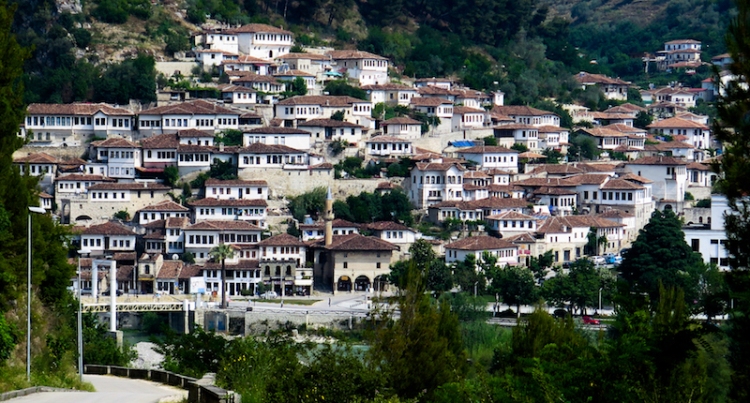
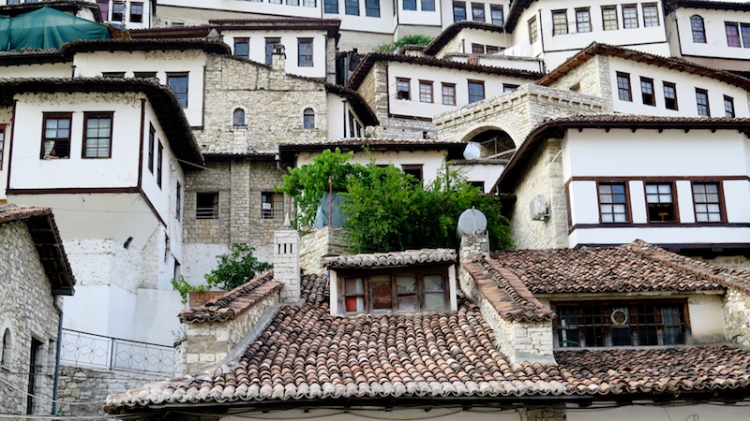
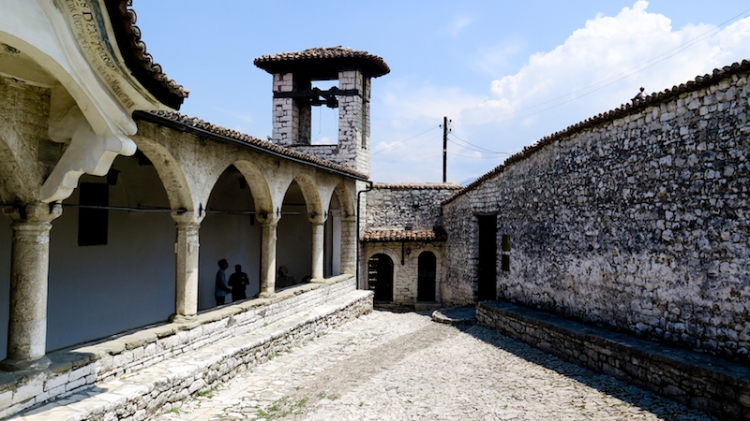
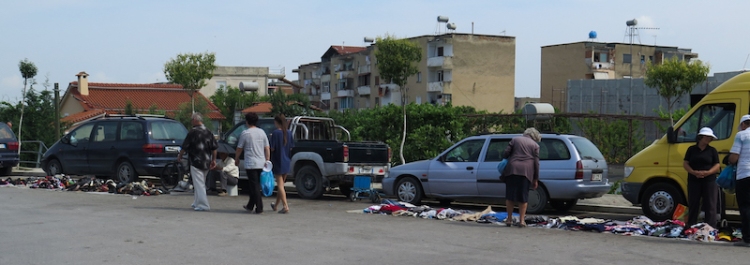
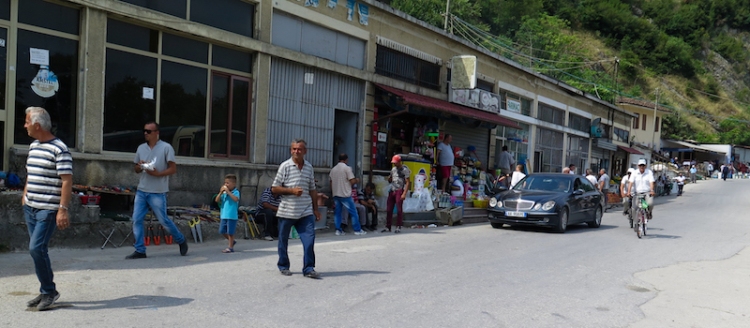
Pollution and scars
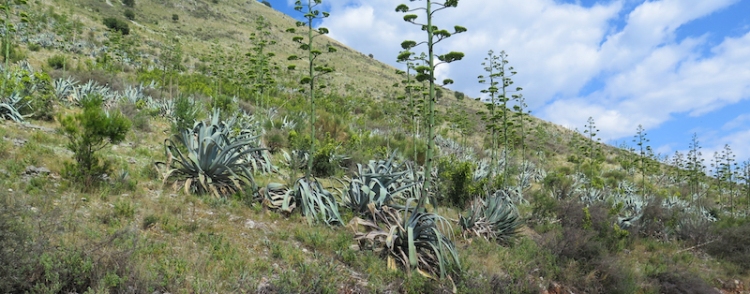
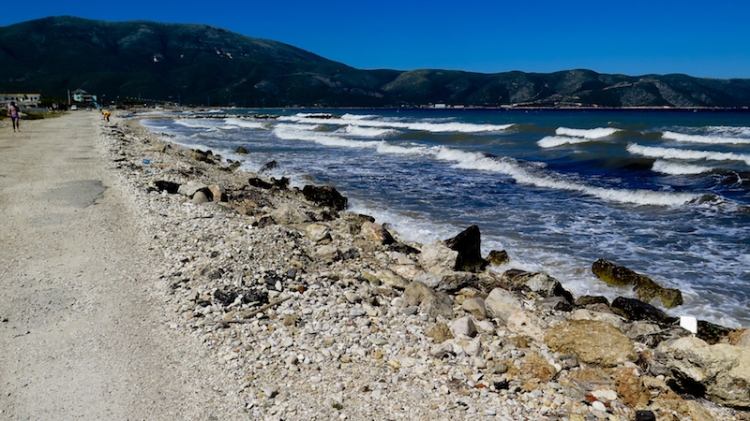
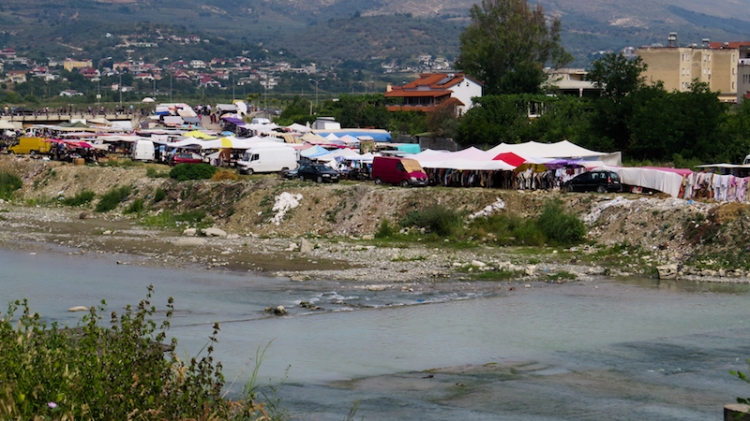
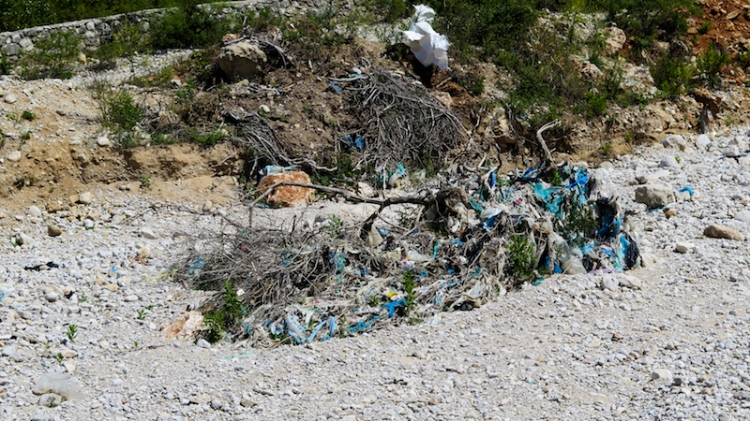
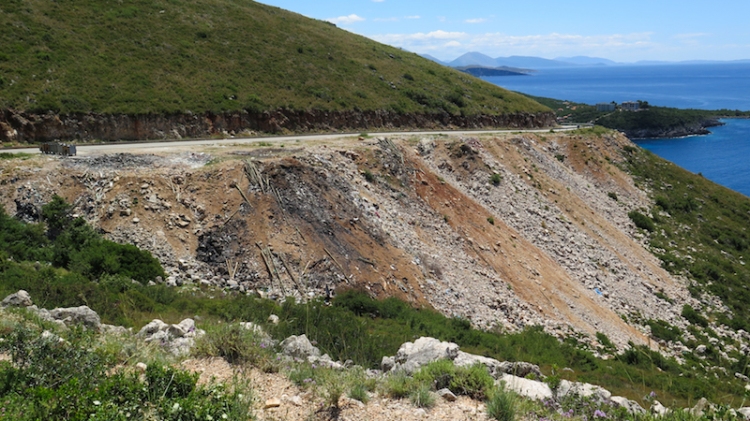
Vlorë
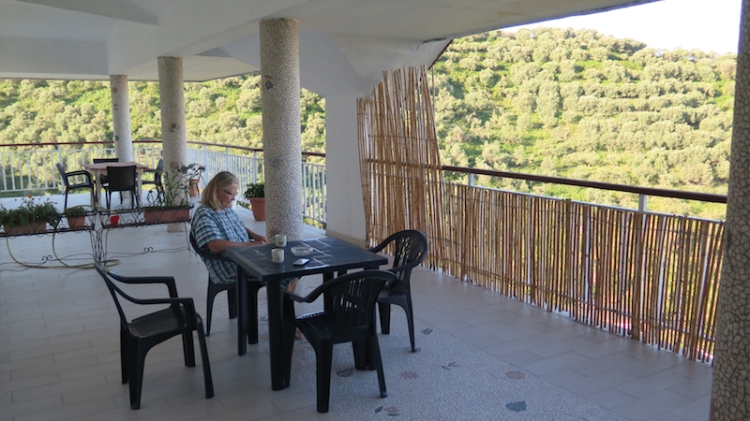
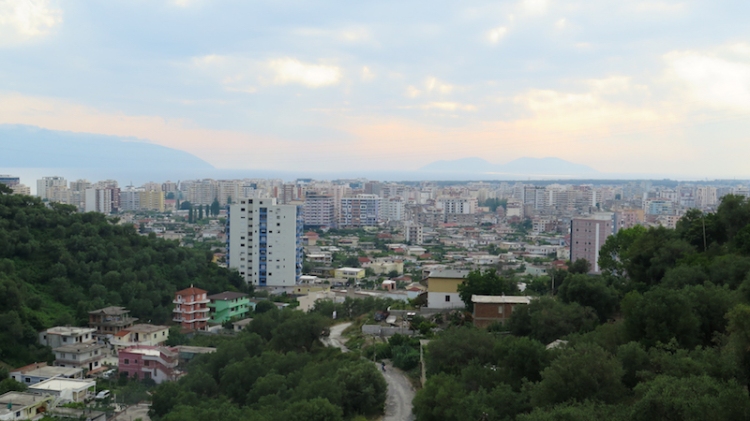
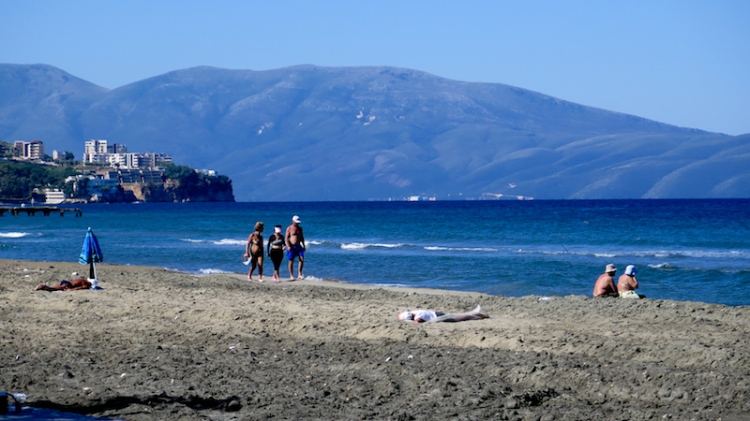
Lavazh and fuel
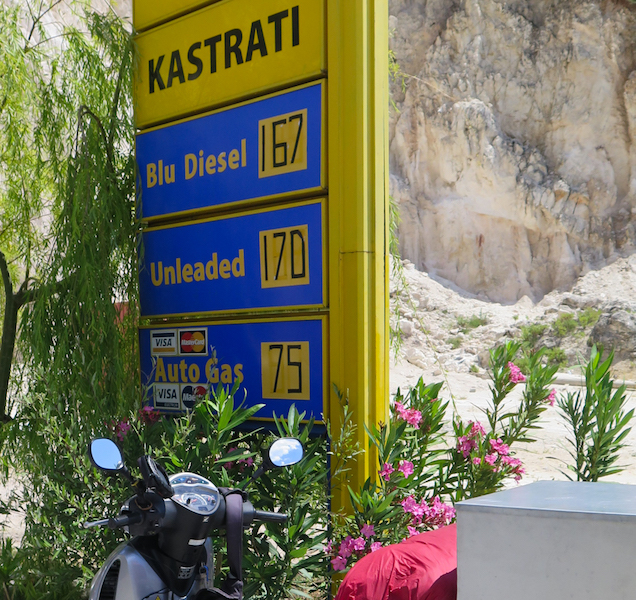
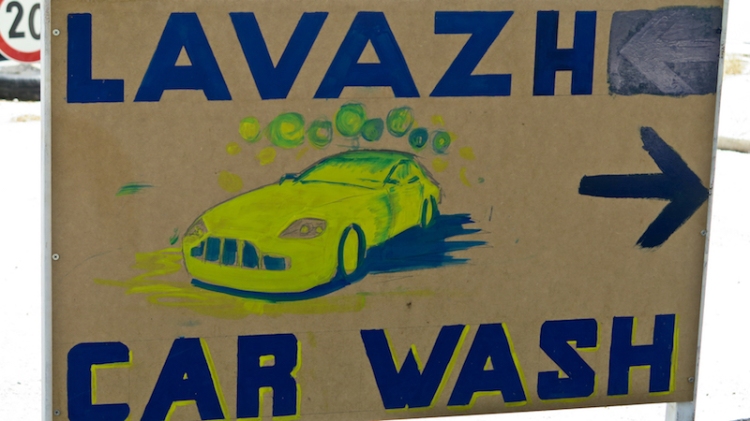
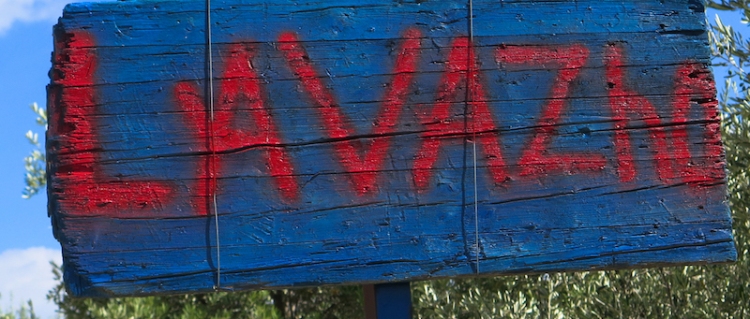
Monuments and shrines
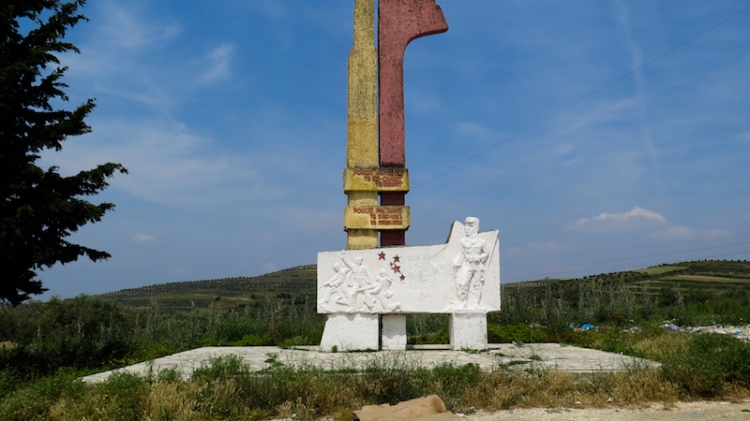
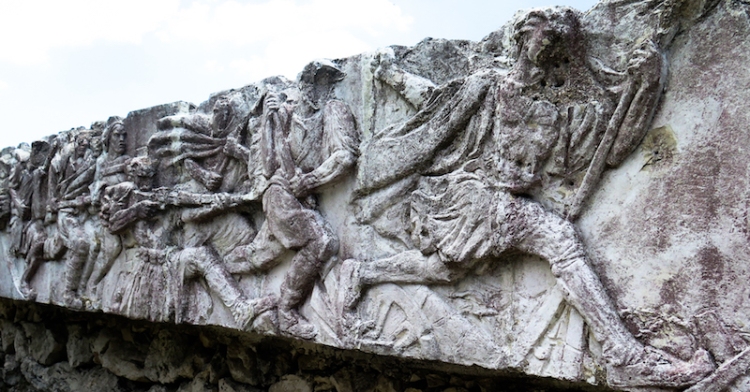
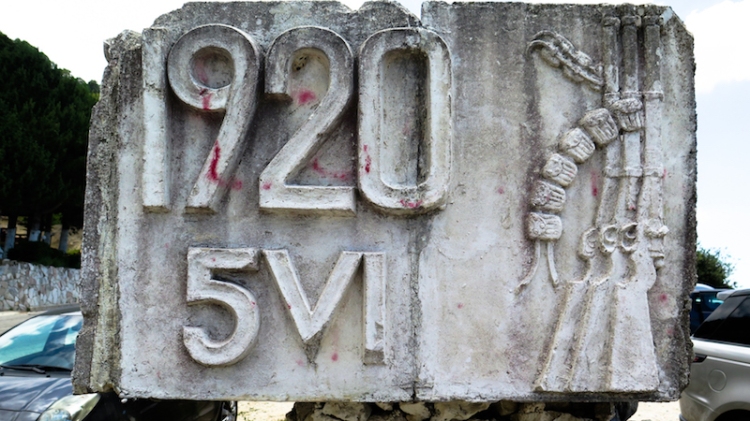
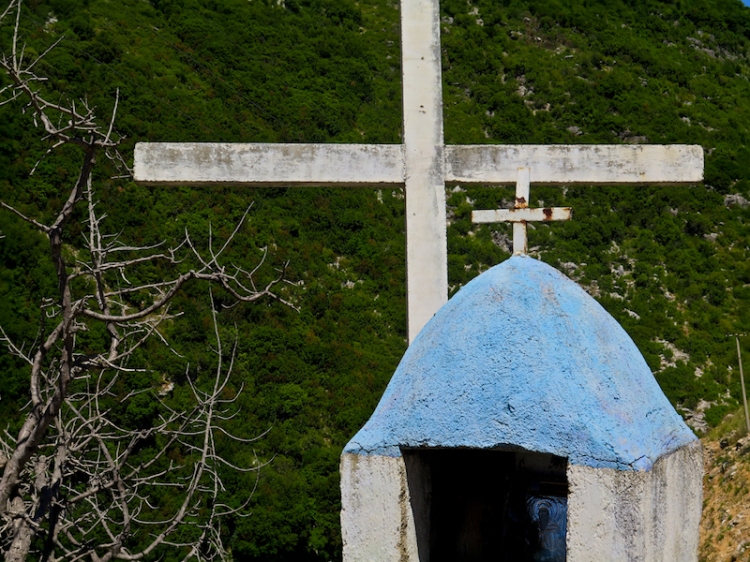
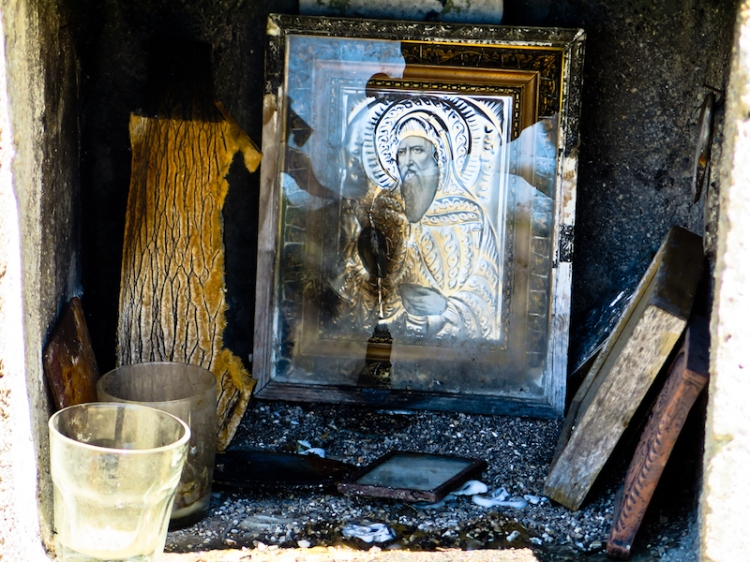
The goodness of people
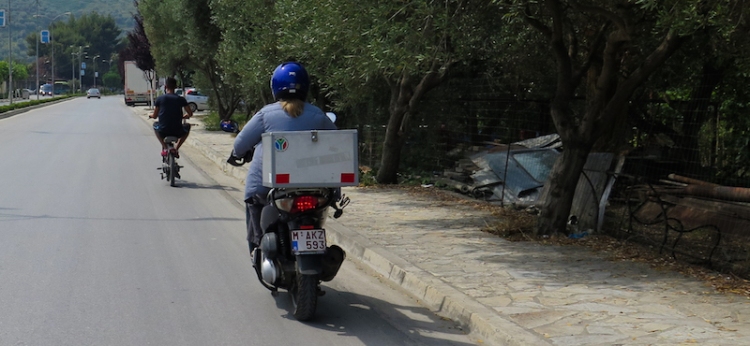
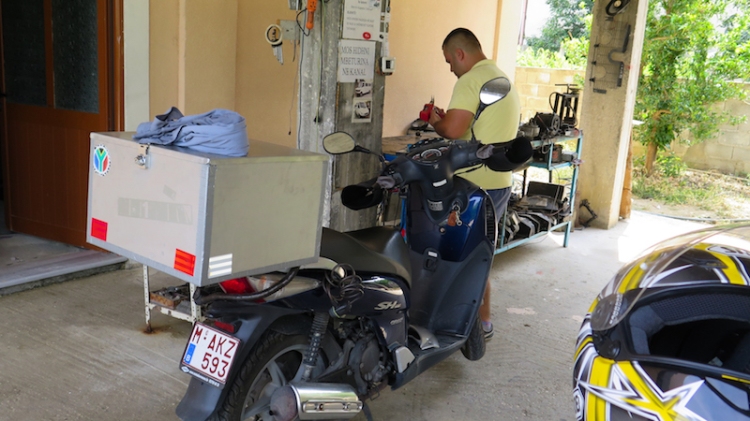
Rurality
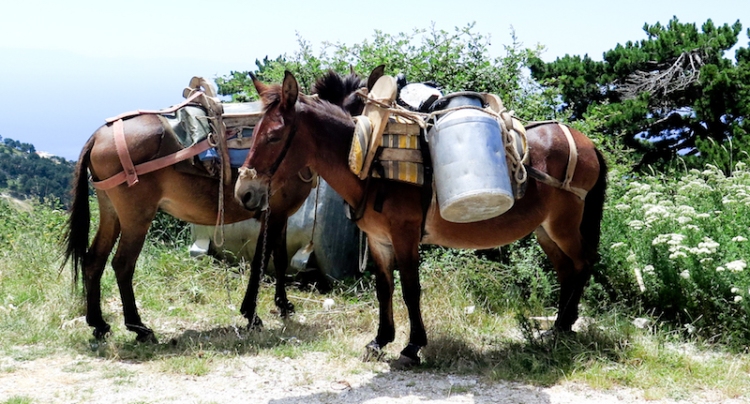
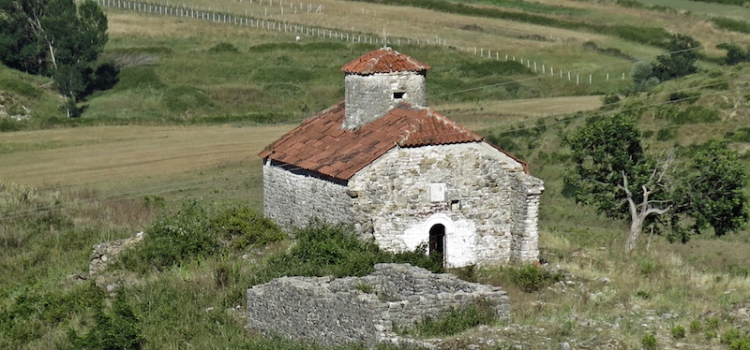
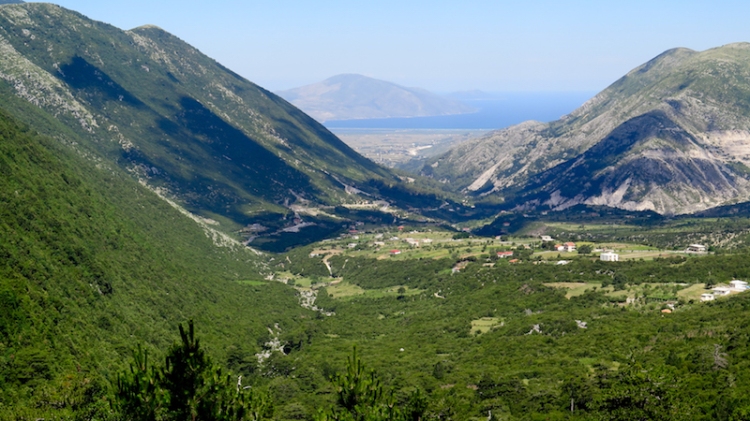
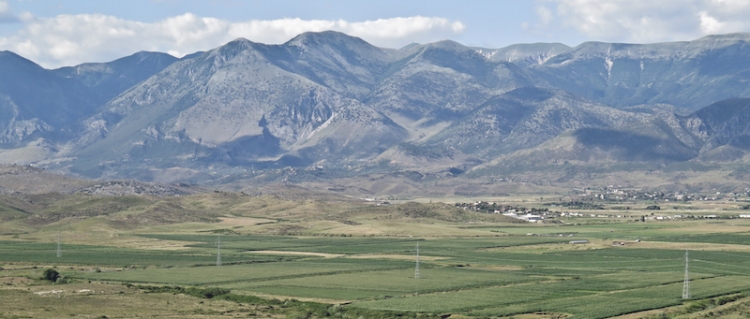
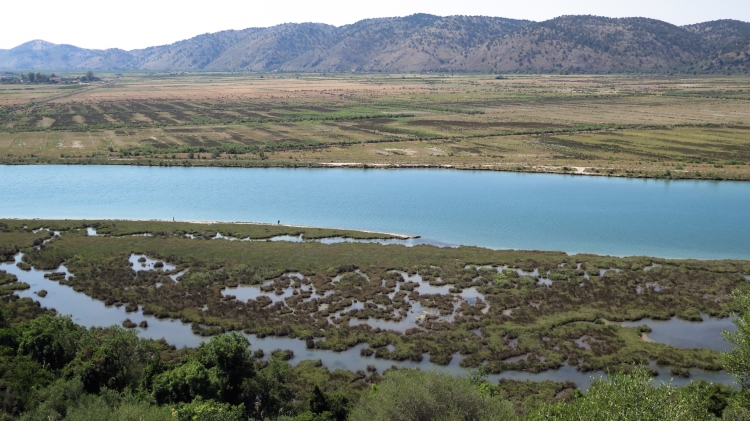
Olive groves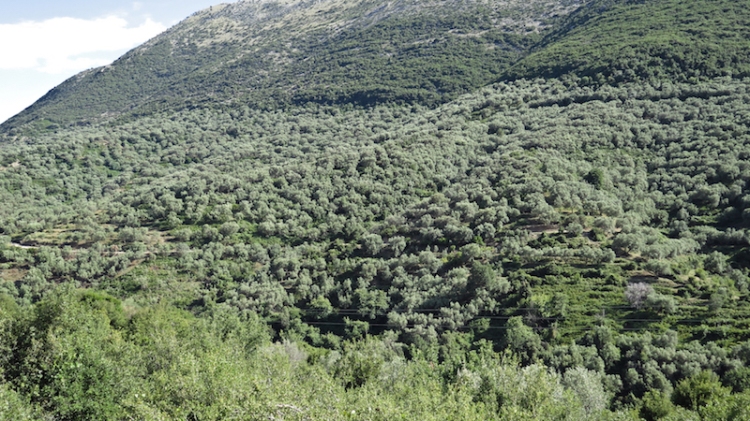
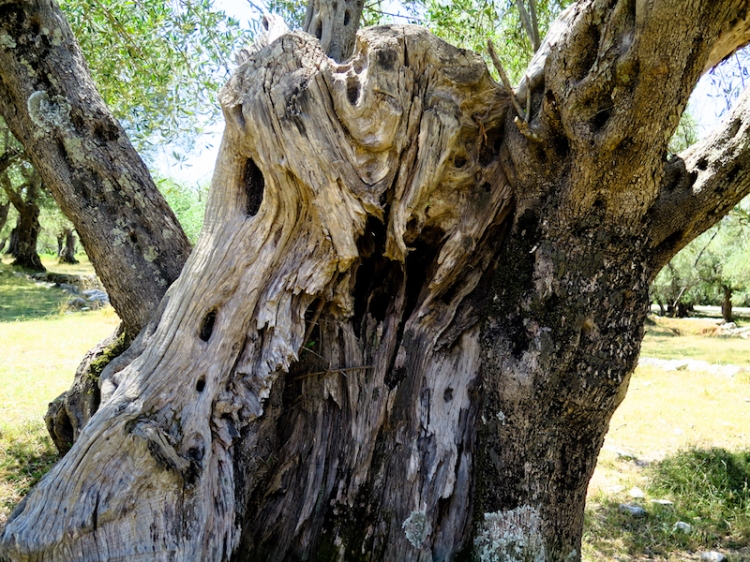
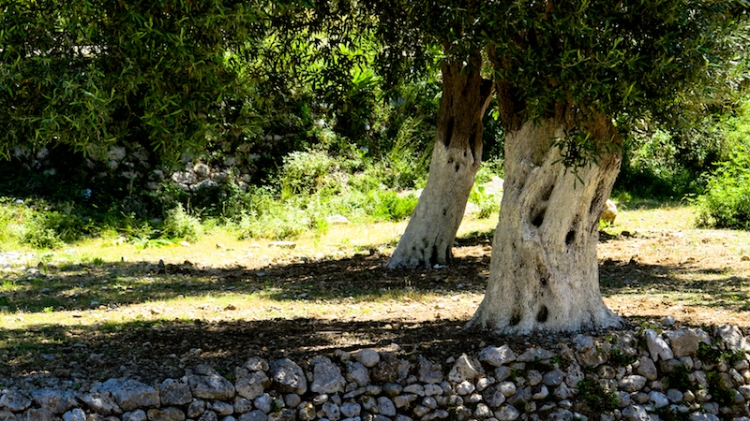
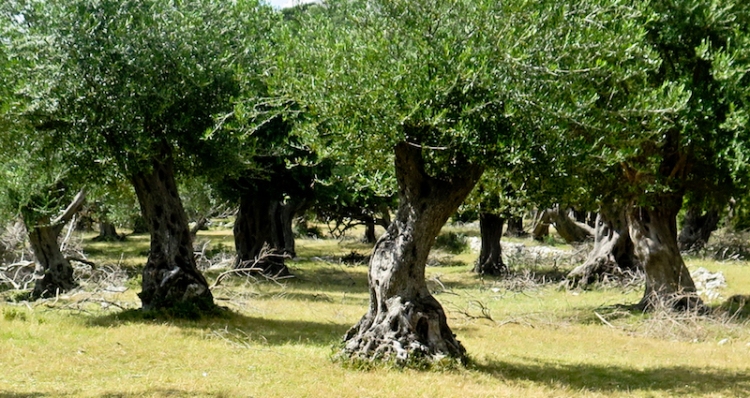
Llangora pass
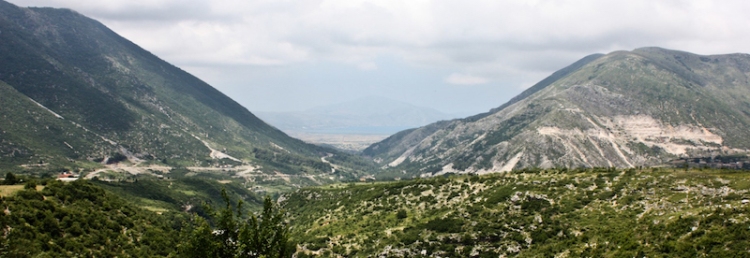
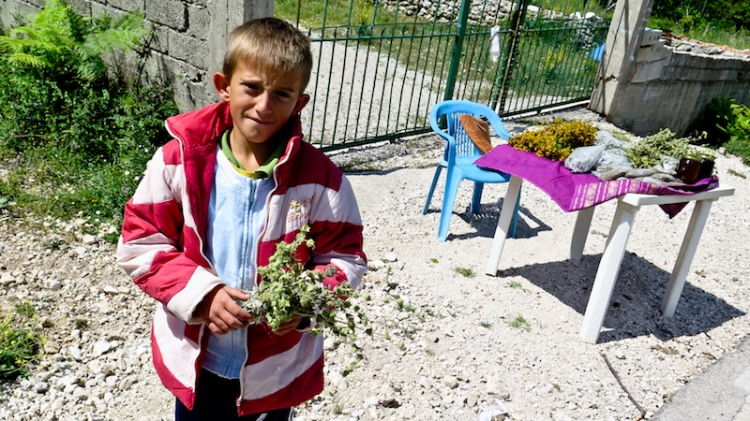
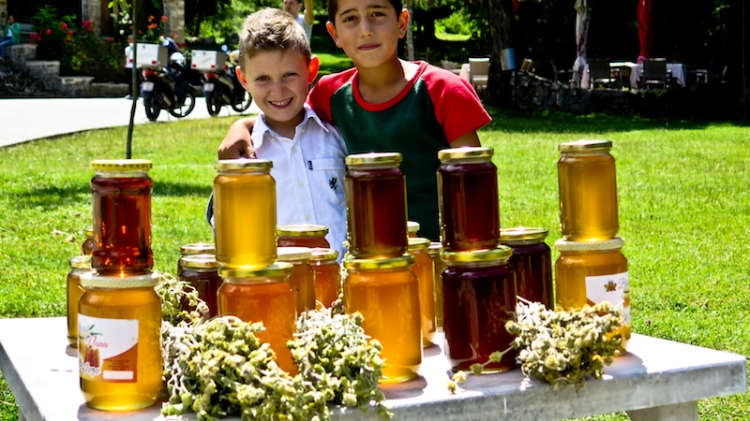
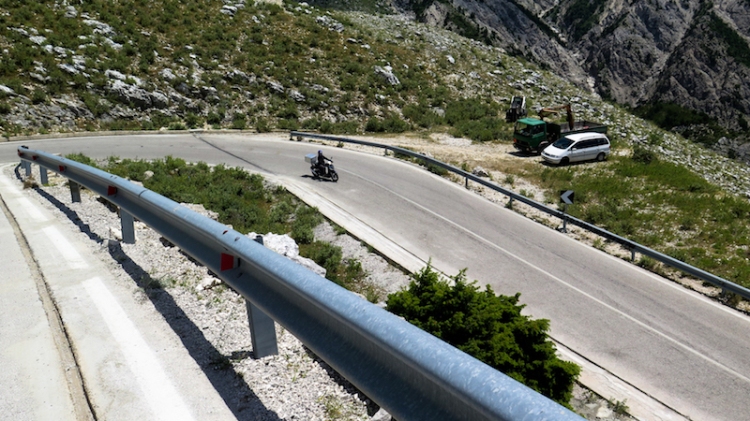
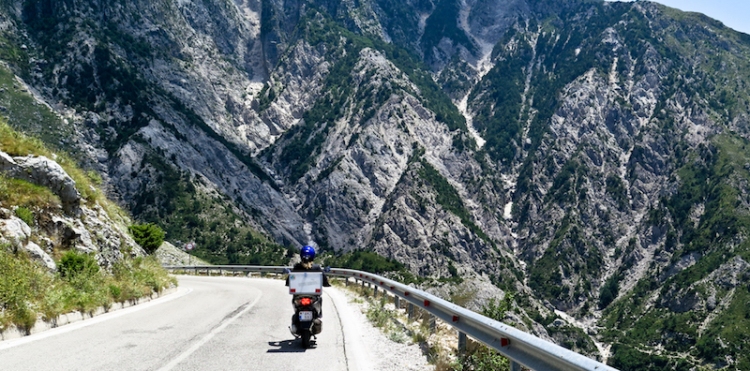
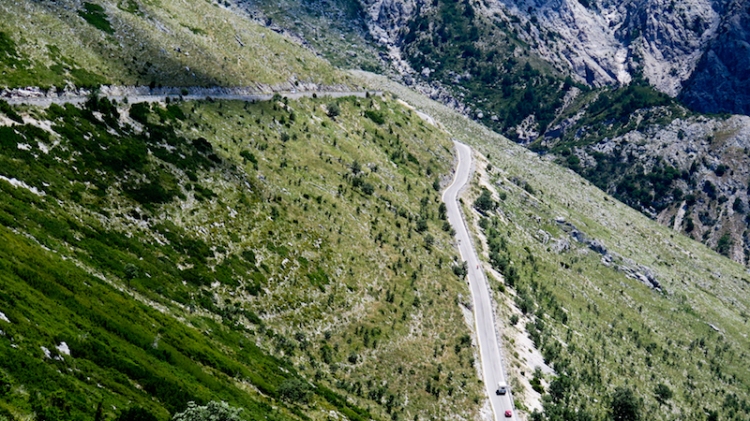
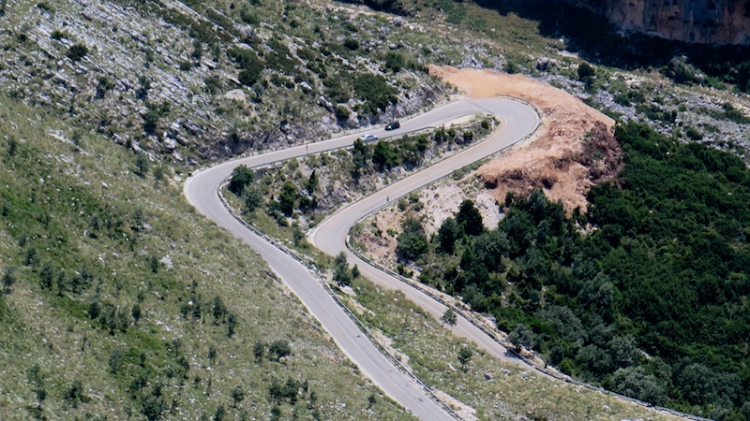
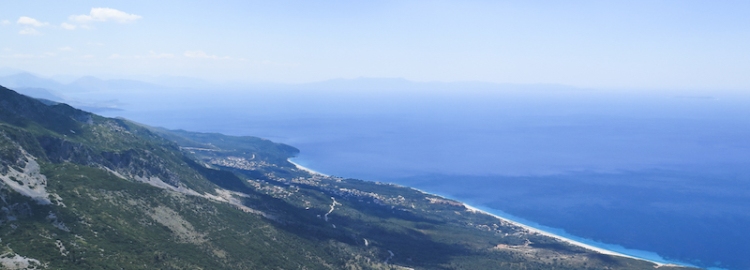
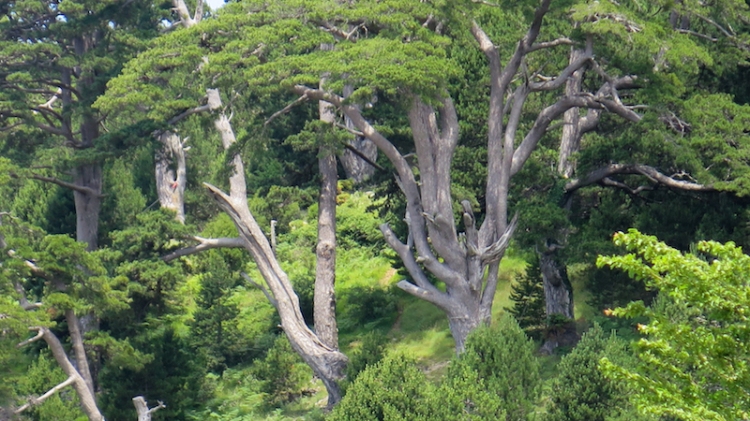
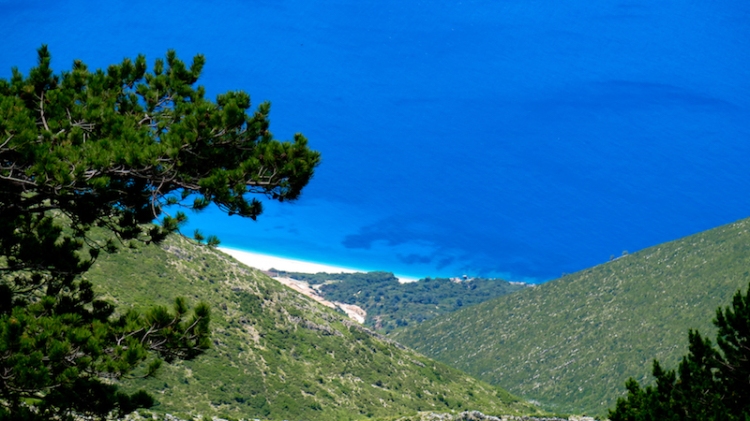
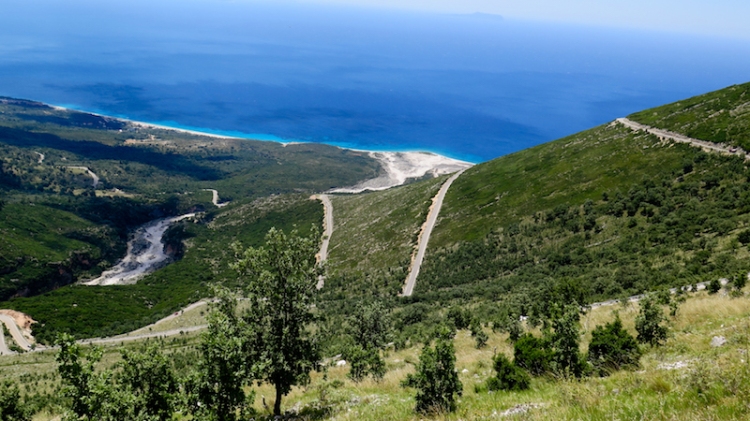
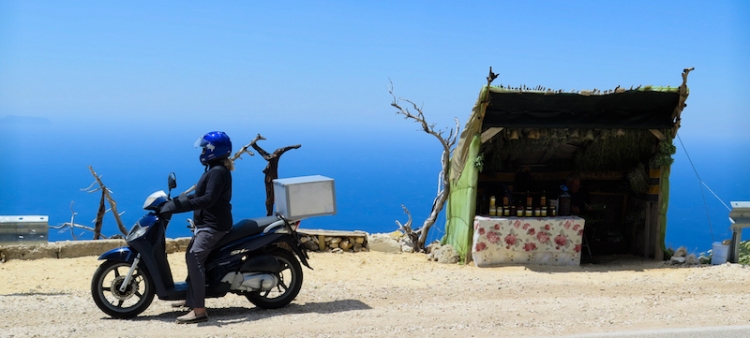
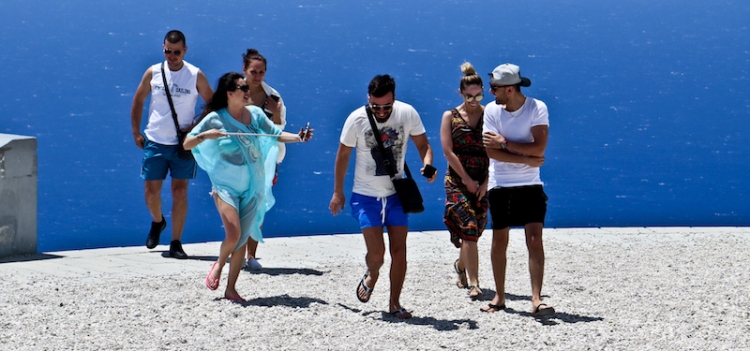
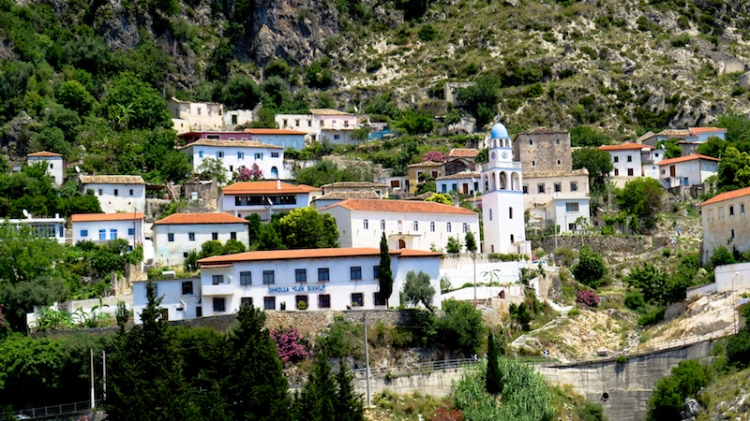
Meet the Honda man
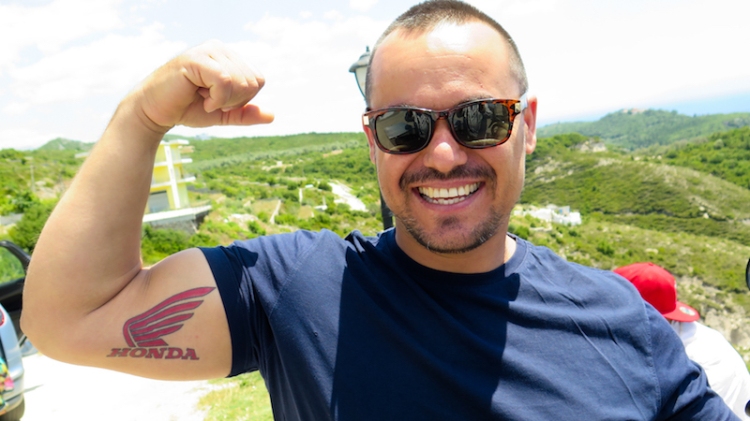
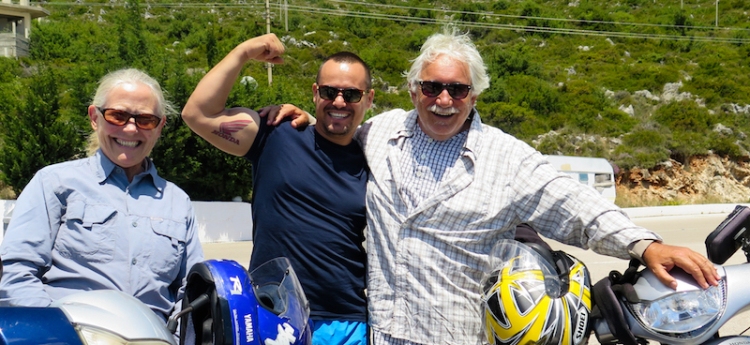
Sarandë
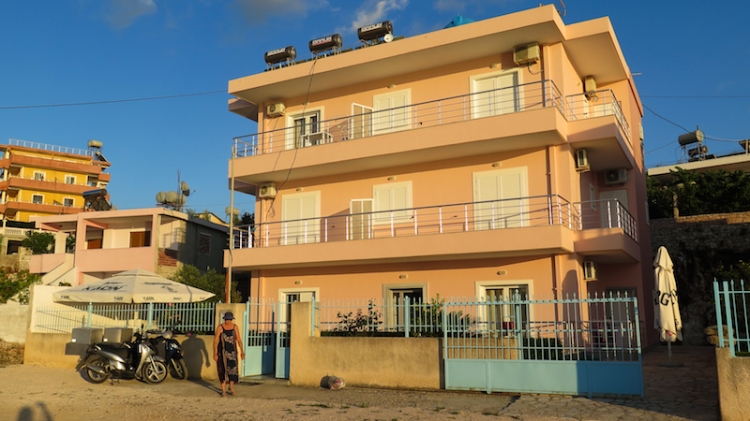
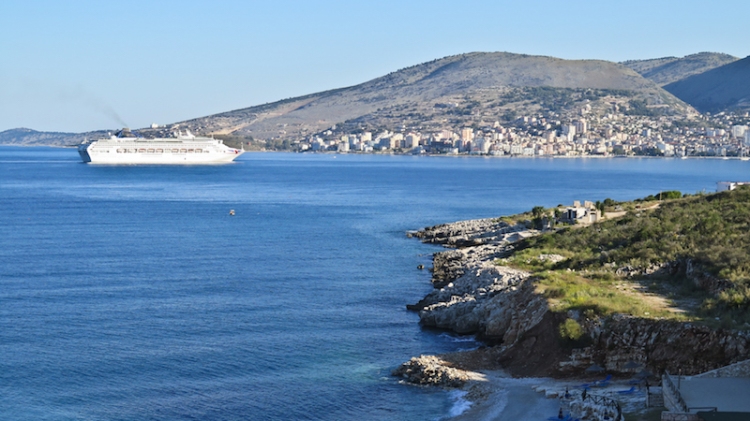
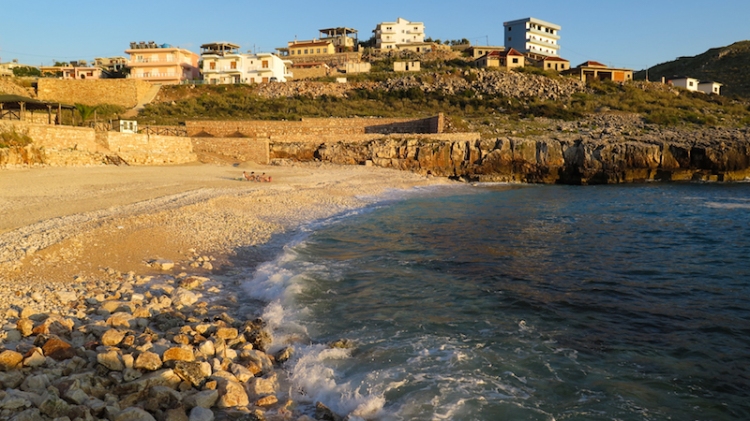
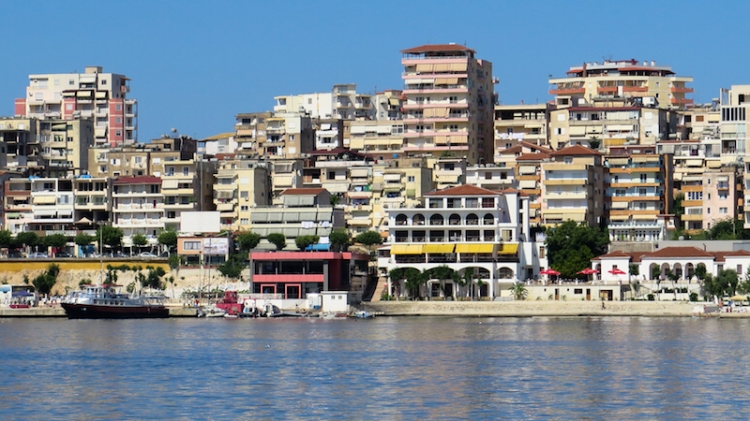
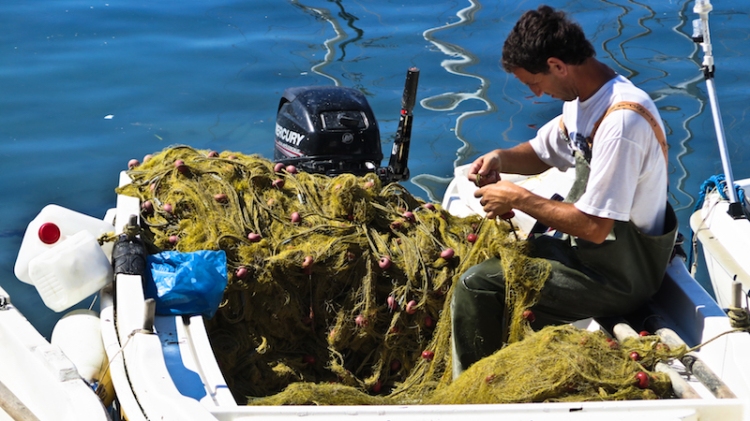
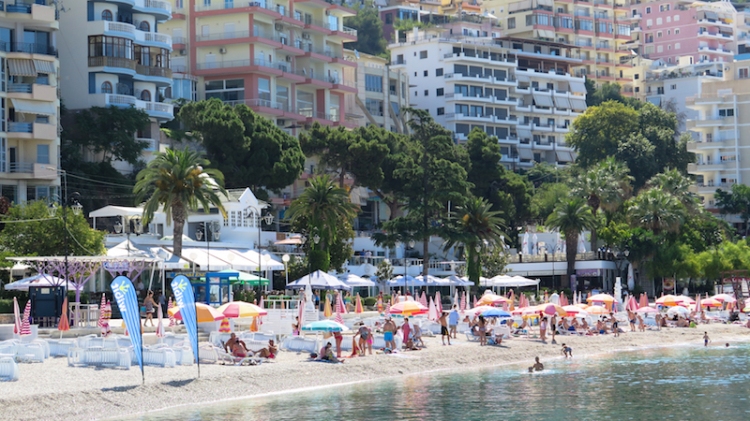
Beaches
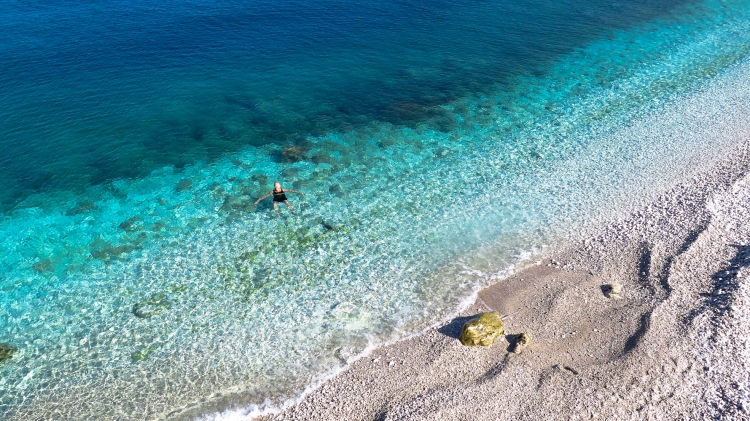
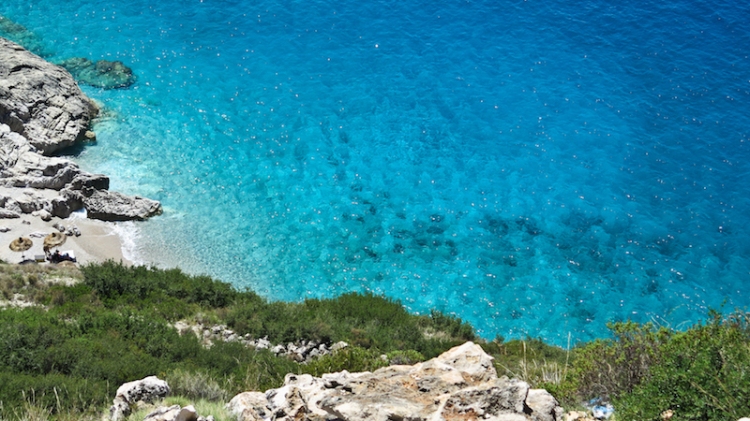
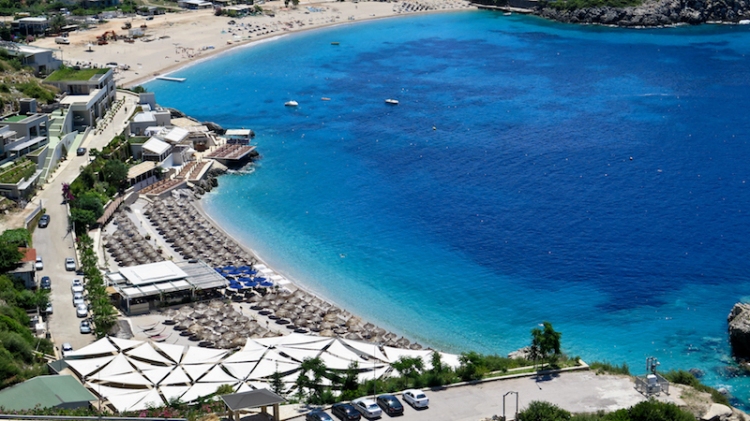
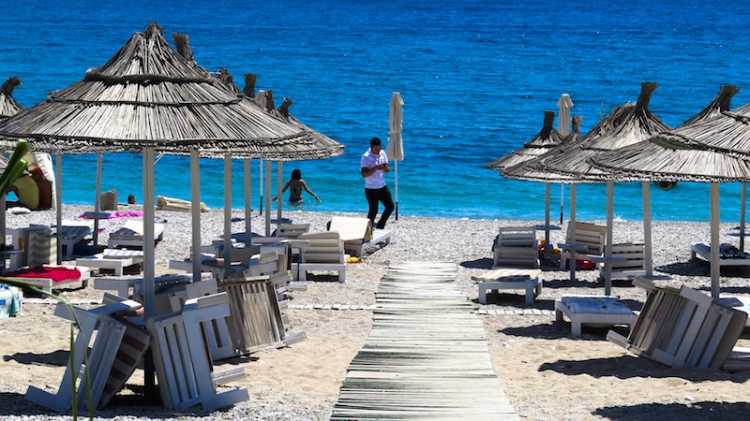
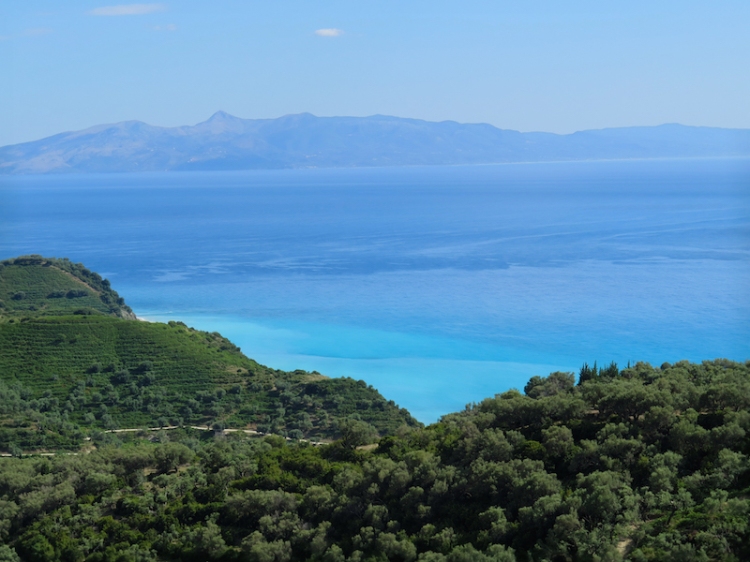
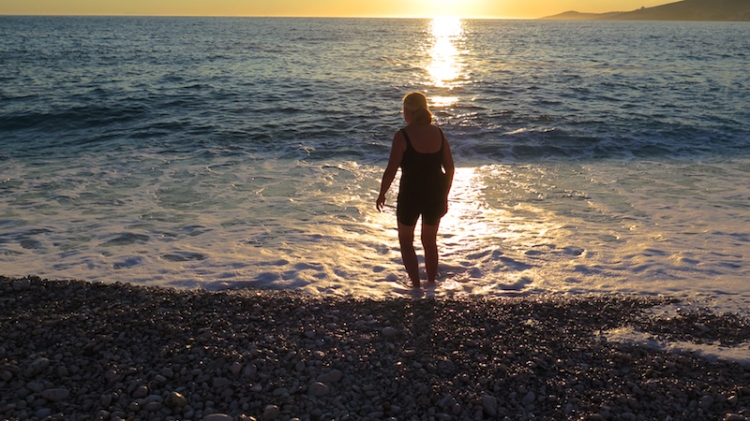
Mercedes Benz
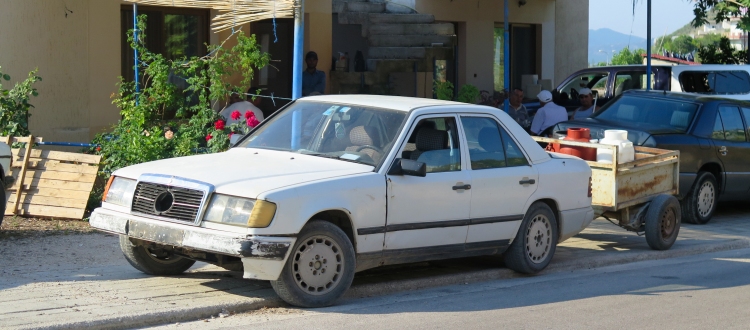

Bunkers
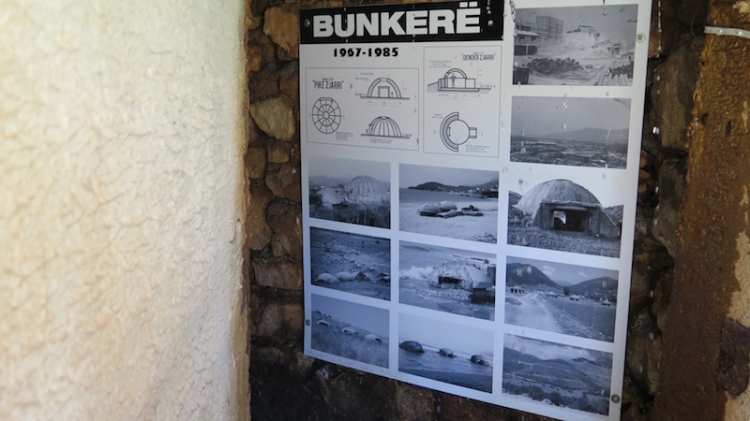
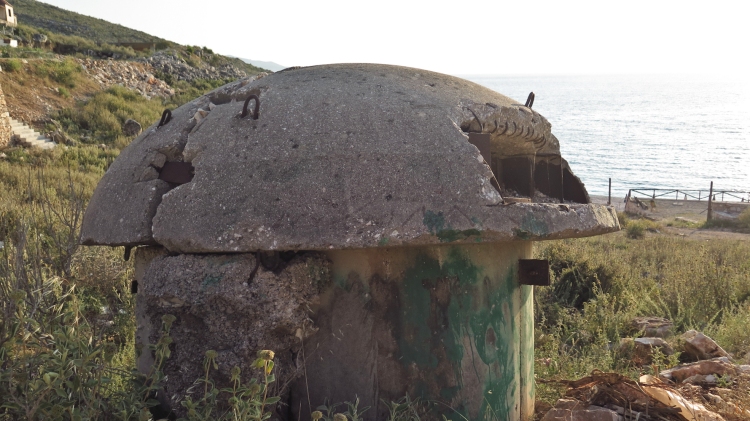
Food
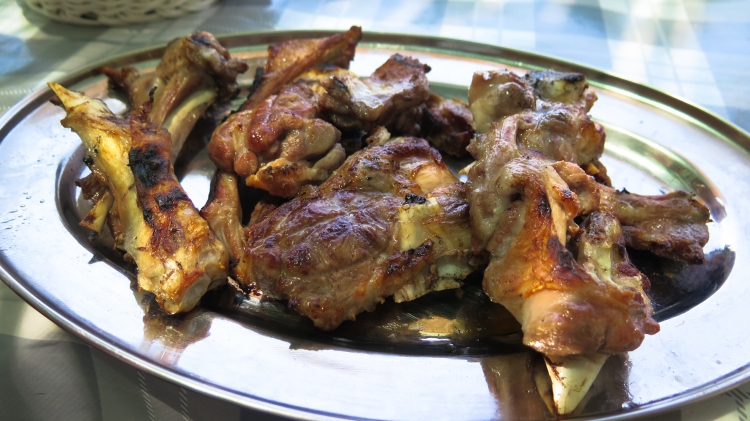
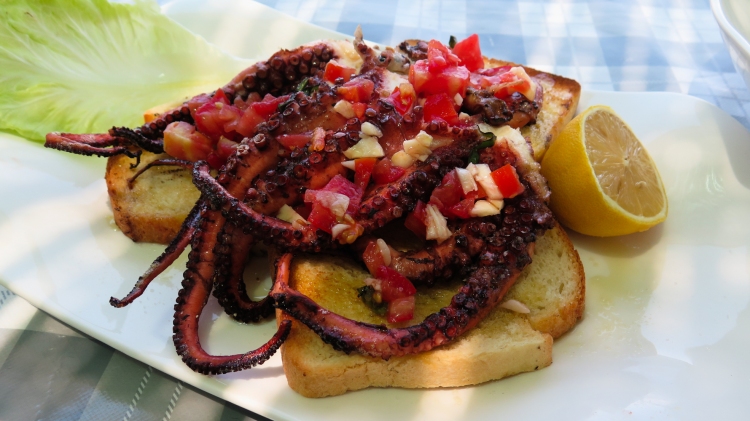
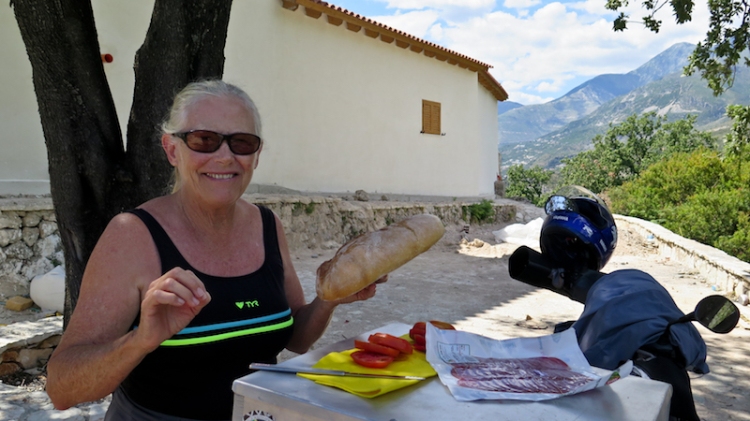
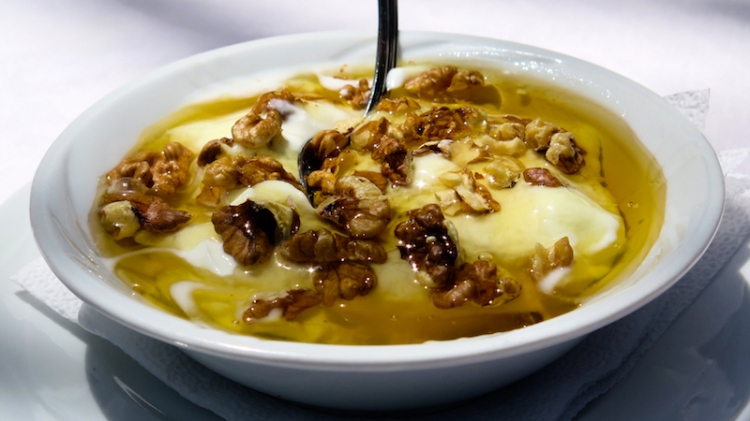
The fighter dogs
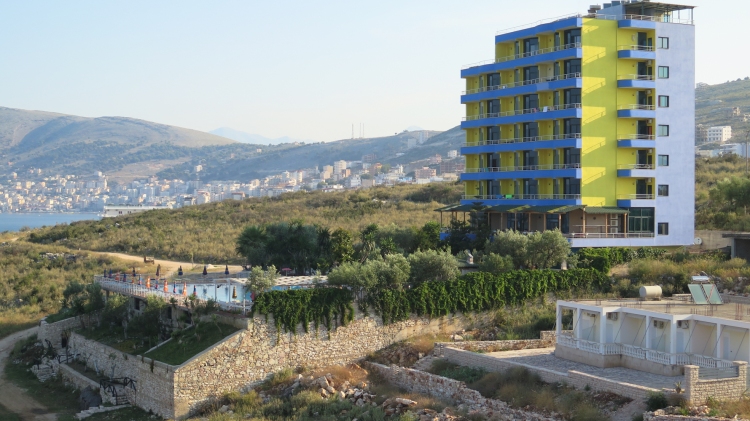

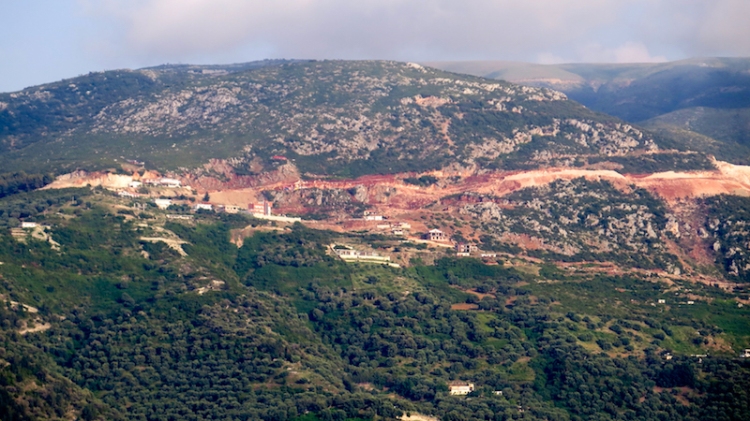
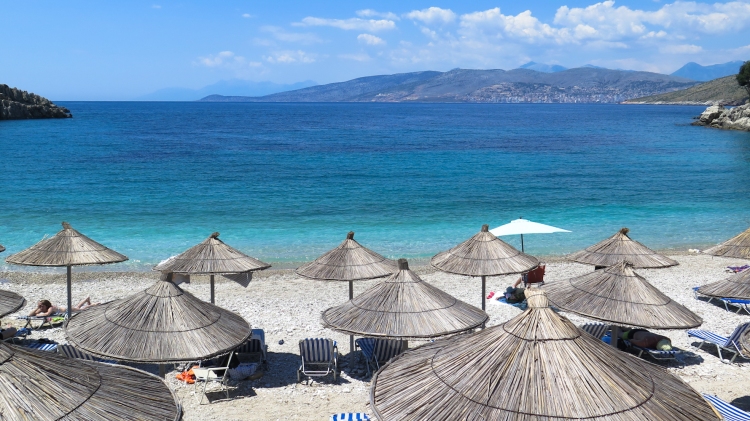

Baie baie interessant. Voorspoed.
On Fri, Jun 23, 2017 at 8:58 PM, Gerard Scholtz wrote:
> Gerard Scholtz posted: ” The smells of a country remain with you. Albania > smells of old oil and DDT, or is it burning plastic? It also smells of old > food in bins – where skinny cats hang about. In the mountains you smell > figs, thyme, origanum and pine trees. It’s virtually a rub” >
LikeLike
Dis ongelooflik interessant …ontstellend ook.Toe ek begin lees,het dit soos SA geklink!Ongelooflike ooreenkomste.Diktators het nog nooit iets vir hul medemense gedoen nie,behalwe vir hulleself!
LikeLike
Dankie vir die insig. Ek het nog slegs Albaniers ontmoet as werkers in Corfu. Vriendelik met hande soos hamme!
LikeLike